#and how much historically inaccurate some movie were on the matter
Text
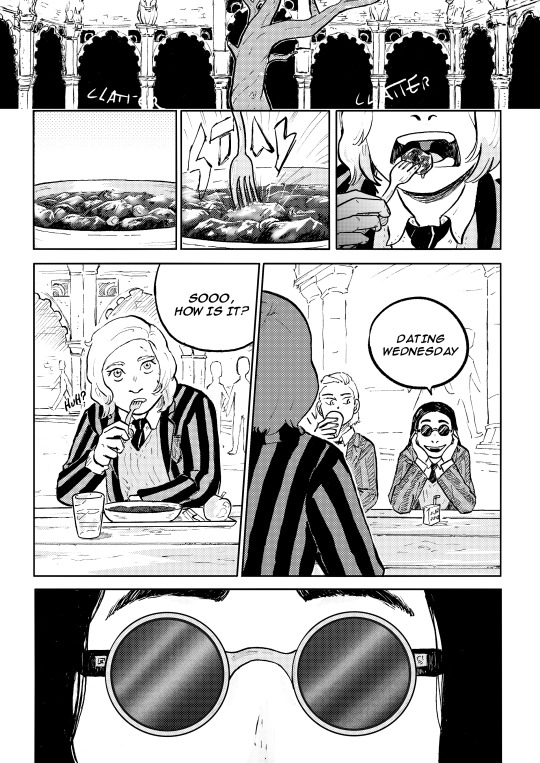

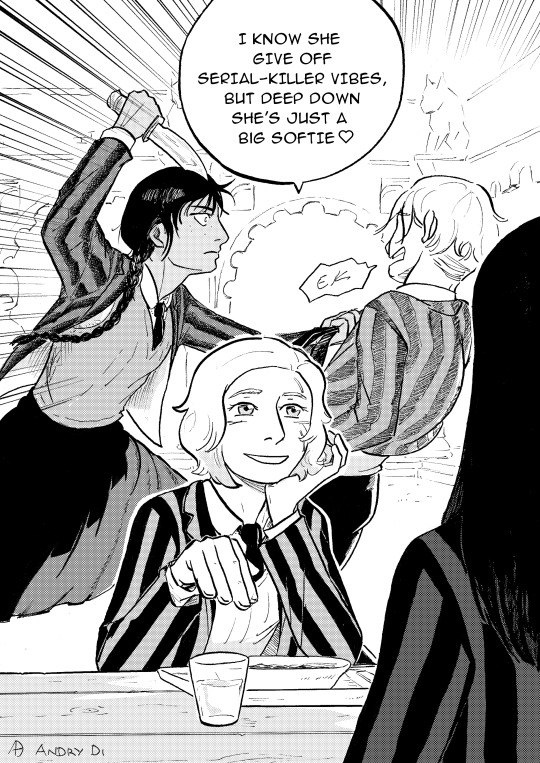
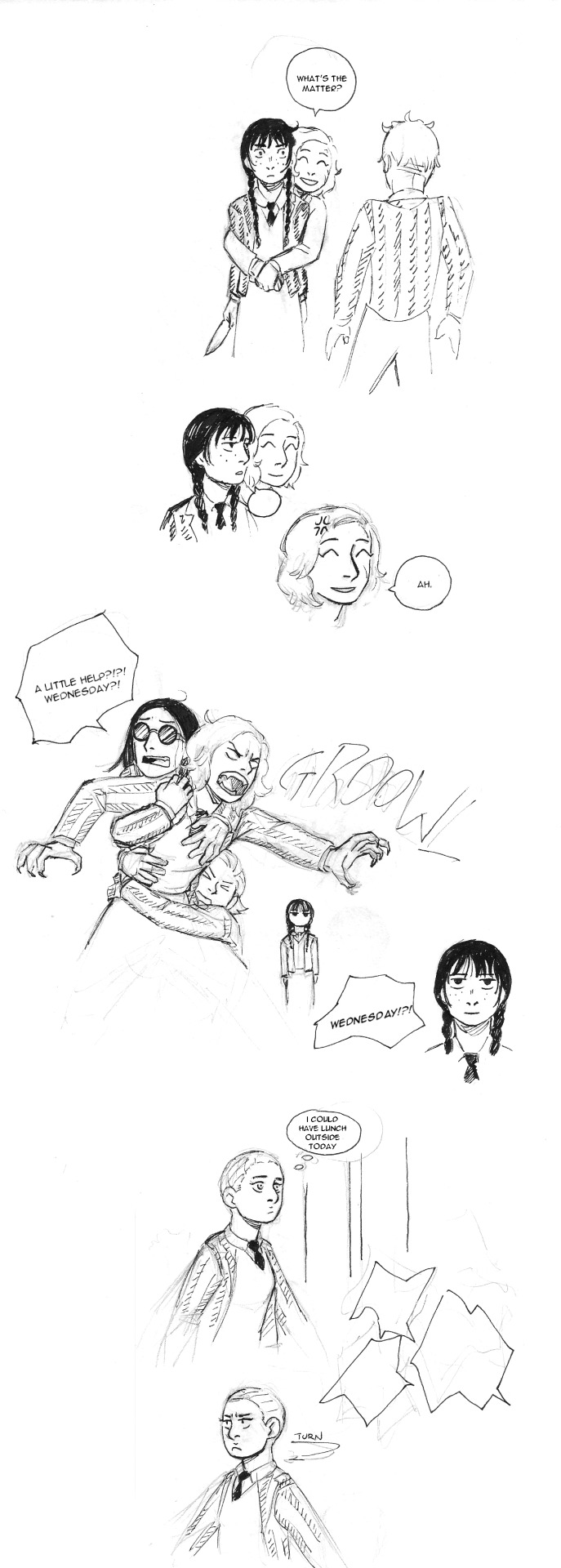
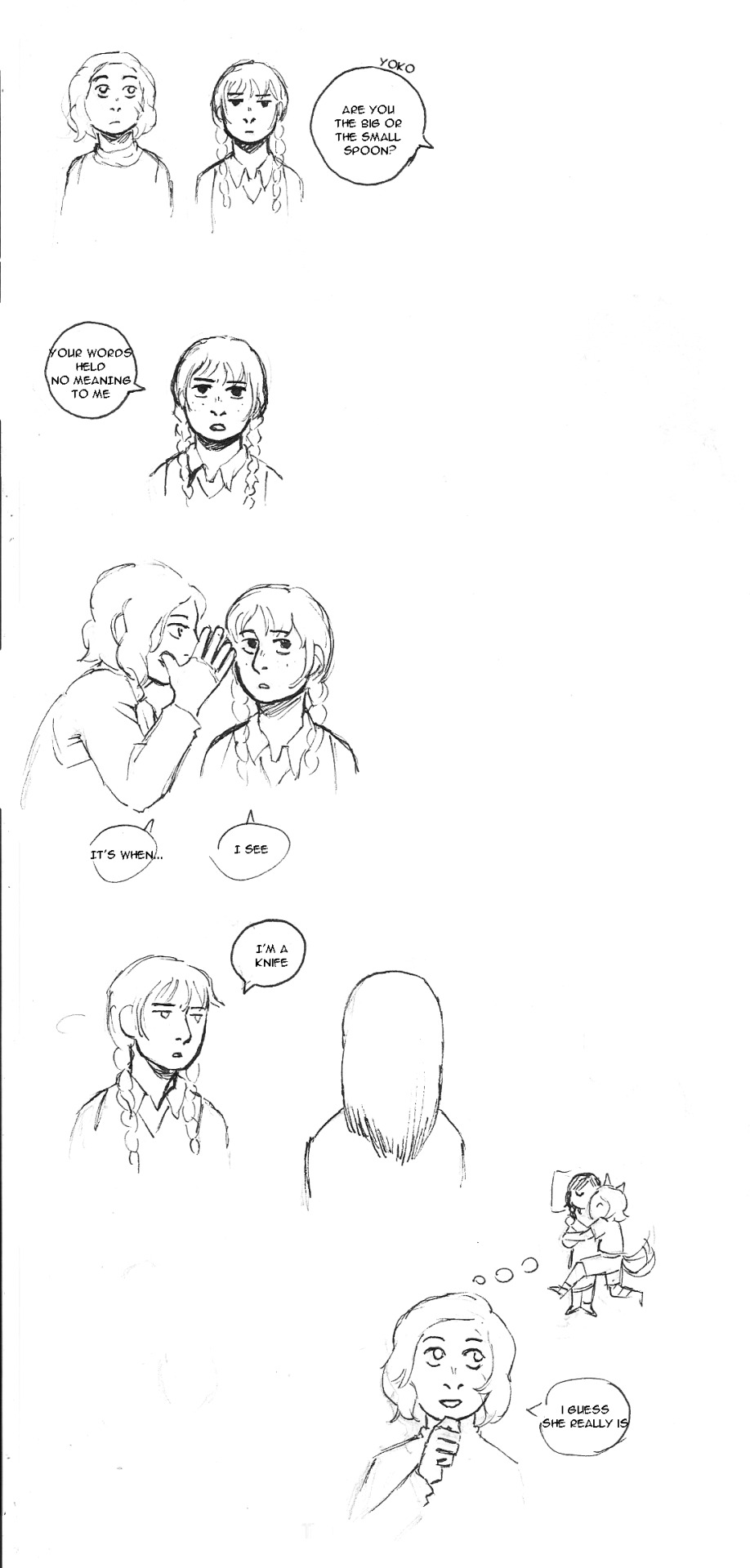
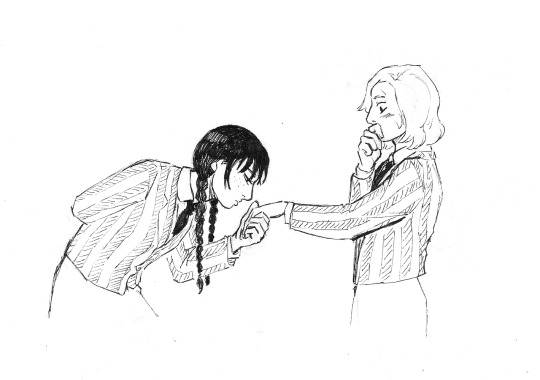
#wednesday#wednesday addams#bianca barclay#divina#enid sinclair#yoko tanaka#wenclair#comics#ad23#i was planning to draw enid's reflection on yoko's glass but i got lazy#for I don't know what reason in middle school my math teacher went on a long tirade of how a proper hand kiss is done#and how much historically inaccurate some movie were on the matter
2K notes
·
View notes
Text
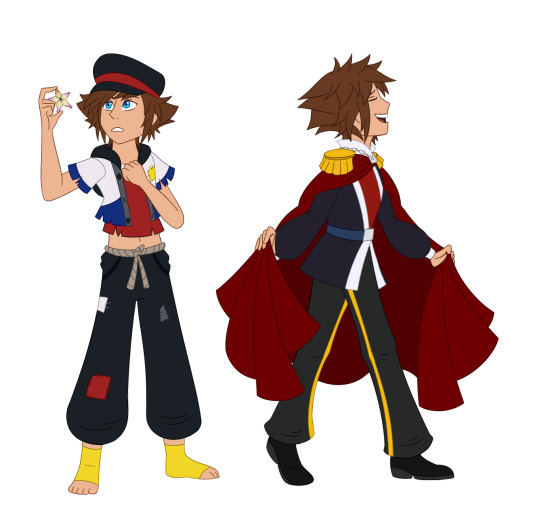
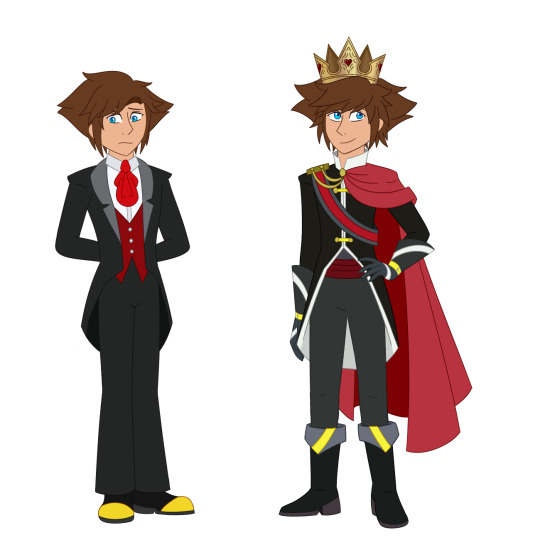
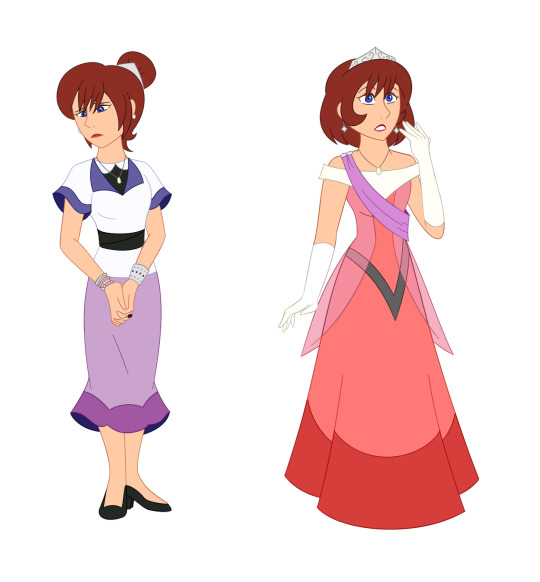
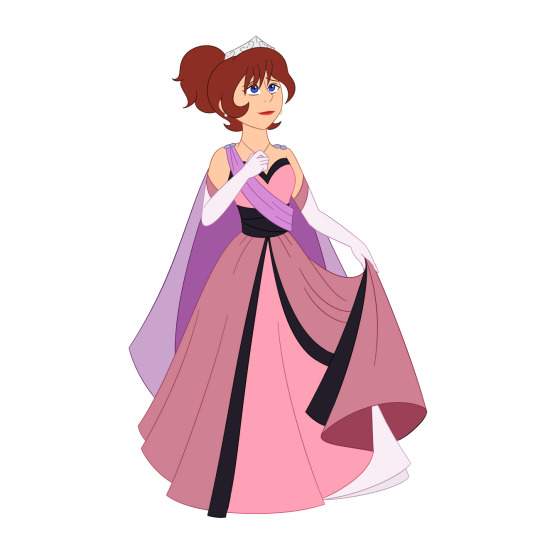
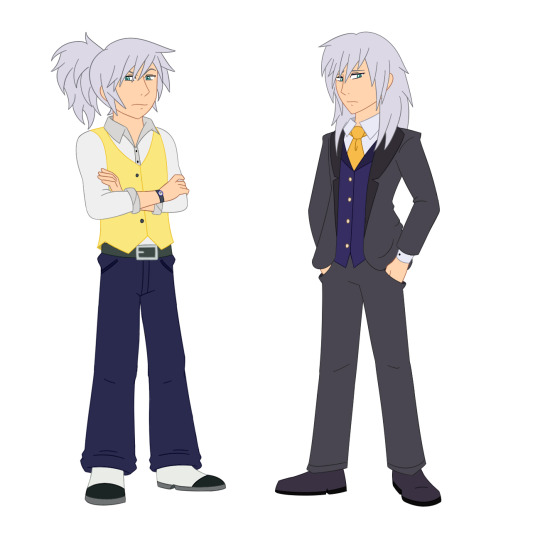
Yessss so I can finally talk about the KH Anastasia AU I've been having Brainrot over for like the past 2 weeks. Yes this is 100% based on the animated Anastasia (which I watched the other night while working on these, pretty good movie though terribly historically inaccurate whoops) and its time for me to ramble about it.
So once upon a time there was this lovely seaside kingdom known as the Destiny Islands, ruled by a kindly king and queen who have five kids (in this AU, the Heart Squad are all siblings, so the oldest is Ven, then Vanitas and Sora who are twins, then Roxas, then Xion). The middle prince, Sora is betrothed to the Princess of Radiant Garden, Kairi, and they're childhood best friends, along with a young servant boy who works at the palace named Riku. So yeah, cute childhood Destiny Trio vibes until...
Old Man Xehanort comes along to fuck everything up; he banishes the king and queen to the Realm of Darkness, holds the kids hostage (and they all kinda suffer a lot as a result, but I'll save all that for when I draw them), and only one of them manages to escape (its Sora, of course), though he suffers a bad fall, konks his head, and winds up losing all his memories at the ripe old age of 8 years old.
Fast forward 8 years and Xehanort's fully taken over, the Islands are miserable, and nobody can travel to or from them (knowledge/travel between worlds is a common thing in this AU shhhh). We have a bitter and sarcastic Riku, living in the abandoned old palace with Donald and Goofy, a pair of dignitaries who had been visiting from Disney Town who got stranded on the Islands during Xehanort's coup. In an attempt to finally get off the islands, these three are trying to capitalize on a rumor that's popular among the islanders, who, despite thinking the rest of the royal family is dead, think Prince Sora might still be alive. Princess Kairi, desperate to find him, is offering a massive reward to anyone who can bring him back to her safe and sound. Though he acts like its just a simple con for quick cash, for Riku, finding the lost prince is far more of an... emotional matter, not that he'd ever let anyone else know.
At the same time, a 16 year old orphan named Skye is not so kindly kicked out of the orphanage that had taken him in when he'd been found as an 8 year old, without a single memory to call his own. Eager to discover if he has a family and reclaim his lost memories (and guided by a mysterious seashell charm someone gave him a long time ago, though he can't remember who) Skye ventures to the old palace, where he meets Riku, Donald, and Goofy. Naturally, they notice the rather startling resemblance Skye has to the lost prince, and decide he'd be the perfect candidate to present to the princess to claim the reward. So they teach this poor lost kid (with a surprising snark to match Riku's own) how to be royalty, all in the hopes that he can somehow manage to convince Kairi. Meanwhile, Xehanort catches wind of rumors of a boy who looks surprisingly like the lost prince he thought had been killed the night of his coup, a prince who could very well lead to the end of his rigid regime if he doesn't put a swift, and violent end to this problem before it can even begin...
So yeah that was a lot! I also drew a lot! From "Orphan" Skye (see what I did there with his fake name ahahah), to a fancy outfit for the equivalent to the "Once Upon a December" scene, to an "opera scene" outfit, to full regal robes (honestly I love drawing Sora in fancy outfits XD). Same deal for Kairi, and Riku too, these were honestly so much fun to draw.
And don't worry cause I plan on drawing even more for this AU too! There's a lot of other characters I haven't really talked about, like Kairi's sister Namine, her attendant Aqua, some poor royal guards forced to work for Xehanort back on the islands like Terra and Axel, and of course the siblings. So suffice to say I plan to draw more for this AU and... mmmm possibly even write it....? We'll see ahahhaha :3
#jen draws#kingdom hearts#disney#square enix#anastasia#kingdom hearts au#sora#riku#kairi#sorikai#destiny trio#soriku#rikai#sokai#character design#kh au#surprisingly not really keys related wow
340 notes
·
View notes
Note
Do you think Dirk saying that he doesn't like to label himself as gay means he has internalized homophobia? Or does he really just don't like to put labels on himself? I've seen ppl saying it's homophobia but there's ppl in real life that don't feel comfortable with labels so I'm a bit confused honestly, cus we are talking about Dirk and he's... Dirk after all
Easy answer: Dirk is Gay.
Prolonged answer: I think it's kinda weird how some fandom discussion around "Dirk dodging the label in One pesterlog" has largely spiraled way outside of its original context to be talked about in a vacuum, especially when that context is crucial to understanding what is actually being said, AKA — it belongs to a deeply awkward conversation between Dirk and Roxy. One of Many they are implied to have had about the subject of Roxy's sustained, unwelcome, and oft drunken advances towards Dirk (& his splinters).
I'm going to reproduce it plus another bit of text down below, for the sake of comparison.





(To prevent the trickster text from looking like absolute shit, I have altered the background. Read the original here, if you're nasty: https://www.homestuck.com/story/5754 )
Now that we've been reacquainted with how and where that sentiment is expressed, let's try to break down what Dirk is doing here.
He is not receptive to Roxy's early advances, and spends most of the 'intro' for this conversation (not pictured) ignoring when Roxy flirts with him, until she gets upset at how 'boring' he is being right now.
Dirk is the one compelled to apologize.
He proceeds to shut the scenario down as an unwanted probability, eliciting further guilt-babbling from Roxy over how Dirk never wants to play along with the perfect traditional family fantasy, until she finally blows up and says it's because he's gay.
"I mean, yeah, that's what I thought."
Dirk, rather than saying I Am Not Gay, since he looooooves changing a conversational subject, claims that "Gay" is not entirely historically appropriate for this situation, given the non-negligible passage of time and the wildly dystopic circumstances* they find themselves in.
Dirk reassures Roxy he does still care about her.
Dirk is absolutely terrified of a similarly inclined (and intoxicated) Roxy up close. This is the most exclamations he's ever used.
Now, *These circumstances? The loss of 99% of the human race, including their society, customs, culture, and prejudices. (ALLEGEDLY.) It's important to remember that from Dirk and Roxy's side of the timetable, troll culture has been pushed as "the norm" for actual fucking centuries. HIC tried to recreate the caste system by artificially coloring human blood, leading to the death of billions. Faygo came out of the water tap, not water. Troll slang was incorporated into the English language. Humans ceased to organically reproduce. They were actively Discouraged from reproducing, since that's not something HIC could have total genetic control over; rendering traditional marriage and the concept of the nuclear family pointless.
You could also argue that same-gender relationships are not uncommon in Alternia, making "gay" altogether unnecessary by proxy, and that's true! But my point is this one: any union (or at least our society's holy concept of it) between straightie humans would be by definition undesirable under HIC's rule, too. She is the church, the president and the governing body. The population is only as good as they are assets for her to do whatever she wants with, including mass murder.
But wait! While that tracks… Roxy clearly still holds onto very 'conservative' definitions of romance for most of Homestuck. We see this multiple times. Dirk, as proved in conversations with Jake, uses 'gay' as an ironic pejorative. Suddenly it's not Historically Inaccurate anymore, Jake's interests are just gay.
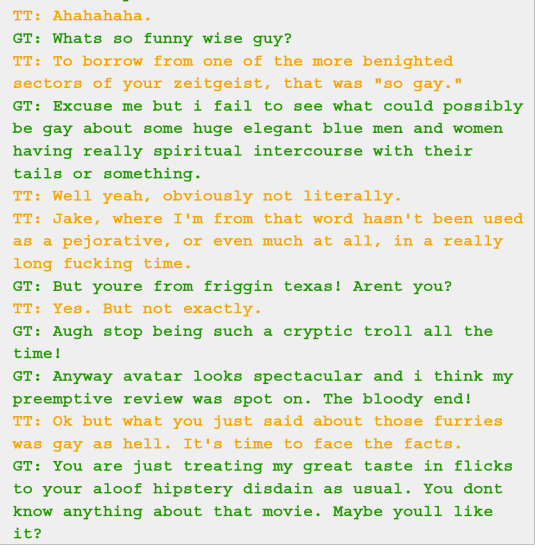
Does this mean the context above is basically worthless, since they don't seem to have internalized it? No.
What must be kept in mind is this: Dirk and Roxy's only "active" link to de facto humanity is our society as it was in the early 2010's. Those glimpses they get by talking with jane and jake. They have all that dystopic context, yes, but the reality that seems the most "unfucked" to them for a grand majority of their lives are the halcyon years before the Condesce's rise to power: back when weed was illegal, BlogSpot was popular, movies sucked, MTV was still a hip channel, and gay generally meant something real bad. The wave of homophobia as a punchline or fear mongering tactic was at THE HEIGHTS. Marriage equality was a hot debate topic. Those were the dayz.
Dirk is keenly aware of the taboo implication the word "Gay" as a self-denomination carries. He's no dummy. But he's rarely direct with his intentions either. He's slippery as a bar of soap. (He's never "straight about his feelings", if you prefer.) And for a guy that cares so much about his reputation and maintaining a curated sense of utter coolness, he wants to avoid outing himself as any sort of weirdo no matter the cost.
But that's not all. I think the gravity of just how much Dirk believes he *owes* Roxy simply for existing as the last human in the same timeframe as her is a severely underplayed aspect of Dirk's core character, together with how much he tries to avoid her sexual advances only to end up feeling like absolute shit over it, because — if they truly are the last people on god's blighted earth, isn't he being "selfish" and "irrational" about not feeling shit for Roxy, in the grand scale of things? Is Roxy not his only friend in tangible reality, even if he avoids the mere suggestion of visiting her? Even if she gets black-out drunk and tries to push him into indulging her, regardless of how many times he's already said no?
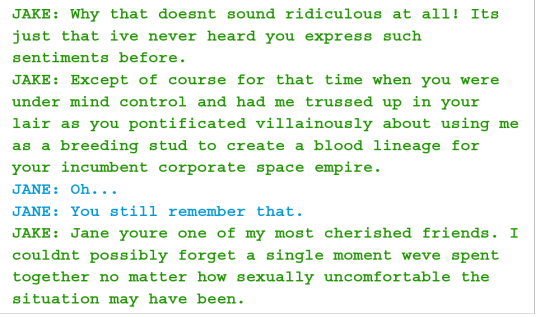

(Spend enough time here and you realize how it directly mirrors the jane/jake experience.)
Dirk cares a lot about each and every one of his friends.
He pointedly adapts his speech based on whichever one of them he's talking to in an effort to express that investment. May it be reassuring Jane, fooling around with Jake, or trying to prevent Roxy from falling into a total catatonic doom-spiral; he avoids telling them anything that would be too crushing to hear. That's not what he's trying to do here. Not to say that he isn't bitchy sometimes, but that’s far from the central thing he does. The Epilogues have retroactively led people to believe that Dirk abhors and despises every single person he's ever been close to before (god forbid) LIKING them, and I think buying too much into that assumption ignores the foundations of his canon text, as well as the central motivation behind 99% of his actions in the story. This is the guy that grew up on Friendship Is Magic, has a picture of rainbow dash shamefully glued to one wall and a rainbow poster of Jake's symbol stapled to another, and everything he does is a little cringe attempt to demonstrate his worth by showing how much he cares about people, even when he's punching his actual feelings down instead of up and saying them.
Which brings us back to the load-bearing part of this question: Admitting to Roxy that there is absolutely no fucking way he will ever agree to having her babbys because he is gay is precisely the opposite of what Dirk wants to say, if his intention isn't pulverizing her. So he doesn't. And his worry on this regard is such that it prevents Dirk from even telling Roxy that he does love her, in the platonic sense, as a friend and hell-earth survivor, because he knows that specificity is what that would disappoint her greatly. (He only ever confesses this to Jane, on the death slabs.)
But also I think this is a really funny visual of Dirk's relationship with the word gay, to put statements into perspective:
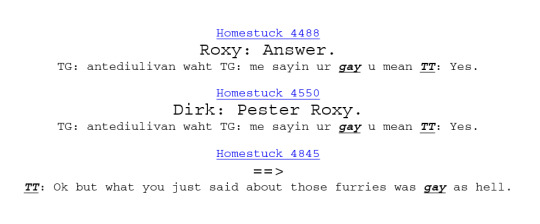
297 notes
·
View notes
Note
Hey, I know you live in MA and are into history. Do you have any strong opinions about the salem witch trials + the romanticization/horror storyfication of the trials?
Yes. But I have different thoughts about the romanticization and/or horror-ifying of the events and the town of Salem as it is today.
For the first, strongly against. 20 innocent people were executed, and more suffered mental and physical trauma during imprisonment. It’s not a case of ~creepy evil demonic magic~ or even #girlpower with witches as we now understand them victimized by the Christo-patriarchy. A bunch of Puritans judicially murdered a bunch of other Puritans. The least respect the victims deserve is to be represented accurately.
(My favorite fantasy representation of the Salem panic is the Physick World series by Katherine Howe. The tired old “real witches in Salem!” trope made new by a historian author with clear understanding of her subject, who manages to handle it gracefully and in its proper context.)
The city of Salem gets a lot of flak for the way it capitalizes on a tragedy, mostly by people who’ve never been there or only visited once. And yeah, if you’re going as a tourist, all you’re going to see is the very tacky surface: the crappy tourist trap “museums,” the “Good Witch/Bad Witch” shirts, the poster that looks like a contract selling your soul to Satan in exchange for Hot Demon Sex(TM).
,..okay, I only saw that poster in one store. But still.
However, I can’t hate modern Salem, no matter how tasteless some of its cash grabs may be. Because I spend a lot of time there when the world is as it should be. And I unabashedly love it.
Tourism from the Panic has allowed a place that might have sunk into obscurity when it lost the shipping trade to flourish, becoming one of the weirdest and most wonderful cities in the USA. Salem has so many fun, unusual shops and restaurants; so many events that wouldn’t be sustainable anywhere else. So much emphasis on historical preservation, from stunning houses and public buildings to actual legit museums like the Peabody-Essex Museum and the Phillips House. And, yes, good tributes to the Panic victims, like the official memorial and an interactive show called “Cry Innocent” (based on the trial of Bridget BIshop).
Plus, you’d be hard-pressed- with apologies to Giles Corey -to find many communities with such open celebration of individuality. Alternative types, vintage and historical fashion enthusiasts, LGBT folks, pagans and witches, and combinations of the above all get to feel normal and accepted. Sure, there’s inter-community drama and the usual biases can still rear their ugly heads. But overall, the general atmosphere is very “anything goes.”
The tacky tourist stuff makes me cringe, but I can’t really regret what Salem has become. So little of the weirdness I love is even consciously linked back to the Panic that Salem’s witchy vibe has kind of become its own thing. I love Salem. I hate the fictionalizing/commodification of historical tragedies. I don’t think these feelings are mutually exclusive.
But cheesy, inaccurate horror movies about the Salem Panic can kiss my ass.
234 notes
·
View notes
Text
🎁🎄❄️What the Lupin Gang would do for Christmas!❄️🎄🎁
Helloooooooo Lupin fans! You may or may not remember me as that one chick who made that Halloween headcanon post a few months back, as well as the Jigen’s bangs post. I’m back with a Christmas post!!!
Please note: Personally, I really only celebrate Christmas in a non-Jesus-y way. (Which is how I’m also writing this post, because let’s be honest, do you really think Lupin is going to confession and shit? Absolutely not.) It’s purely out of habit because I was raised Catholic, but I practice witchcraft now. My family doesn’t know that though. Because of this, I considered also making posts for other winter holidays, so I could include Lupin fans that don’t celebrate Christmas. But I didn’t want to accidentally mess it up, or write something inaccurate about a holiday that I don’t celebrate. It felt disingenuous to make a Hanukkah post because I’m not Jewish and it doesn’t seem like my place, and I didn’t want to do a Yule one either, because no two people celebrate it the same way. So, I strongly encourage others to add their respective winter festivities to this post if they want to! We’re all about inclusivity here.
Without further ado:
🎁LUPIN:
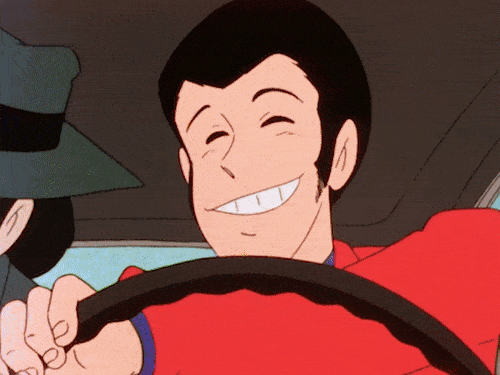
I don’t feel like it needs saying, but this man goes bonkers for Christmas.
He flip-flops his choice of red or green jacket by the year. But it always comes with an equally garish Christmas-themed tie, just to make explicitly clear that this is The Christmas Jacket for the year, as opposed to the standard red/green jacket.
The hideout(s) are always decorated to the GILLS inside. It’s an odd mix of older classy decorations he’s inherited from his family, and absolutely horrendously tacky ones he’s bought himself.
Picture real branch garlands, wrapped tastefully around gilded candelabras that have been passed down through several generations. And then one of those singing, dancing stuffed animals from Walmart that plays “Jingle Bell Rock” when you squeeze its paw, right next to it.
Christmas-themed heists? You know it, baby. But he won’t steal anything on Christmas Eve or Christmas. It just isn’t in the spirit of the season, in his opinion. But he’ll leave a little something-something with his calling cards during the rest of December. A candy cane, a sprig of mistletoe, a bough of holly, etc.
Lupin despises eggnog. He loves any other Christmas drink, just not eggnog. He’s too grossed out by the idea of drinking eggs with alcohol- some things just shouldn’t be mixed.
Will not allow anyone to mention the truth about Santa Claus in his presence. Yeah, he knows, but that’s not the point. It just feels like bad luck to say it out loud. The harder Jigen tries to debate with him that Santa isn’t real, the harder he digs in his heels that “of course he is you absolute Scrooge, how dare you! If you don’t believe, you don’t receive.”
Favorite Christmas Songs: Anything peppy!
Wonderful Christmastime by Paul McCartney
Step Into Christmas by Elton John
Rockin’ Around The Christmas Tree by Brenda Lee
We Need a Little Christmas by Percy Faith and his Orchestra
A Holly Jolly Christmas by Burl Ives
All I Want For Christmas Is You by Mariah Carey
Santa Claus’ Party by Les Baxter
Favorite Christmas Drinks: Literally anything except eggnog.
Favorite Christmas Foods: Anything obscenely sugary. Especially gingerbread men and other decorated pastries.
Favorite Christmas Activities: Loves to ice skate and make gingerbread houses! But his houses usually look fairly pathetic, no matter how hard he tries.
Favorite Christmas Movie(s):
The Grinch (Jim Carrey version)
Home Alone
Scrooged
Christmas Gifts: The king of gag gifts, but he also gives surprisingly thoughtful presents too. He’s the kind of guy that would get a person something they mentioned once offhandedly that they really liked, and he’d go back and get it for them.
🎅JIGEN:

Lupin always wants to decorate the hideout(s) the second Halloween ends, but it never happens. With Jigen being the only American in the gang, he always puts a stop to it in order to preserve the quickly-disappearing border between Thanksgiving and Christmas.
What can I say, dude loves his Thanksgiving excuse to eat like shit and do nothing for a day. Even if it is a fucked-up holiday, historically speaking.
But once the Thanksgiving meal is over, he gives Lupin the okay to go crazy. He’s pretty stoked about Christmas too, but too full of turkey to contribute, so he just watches Lupin hang up Christmas lights everywhere while he lays on the couch and digests.
Jigen likes Christmas a lot, but like, in a normal person kind of way. Nowhere near Lupin’s insane level. He’s surprisingly open about his enthusiasm too. The average person would think he doesn’t really care about Christmas much (or anything else really), but to the gang, Christmastime is the most openly excited they’ve ever seen him.
One year’s Christmas-themed heist involved Jigen dressing up as a mall Santa as a part of the plan. The gang powdered his beard, gave him a pillow for his stomach, and sent him on his way. Everything went surprisingly smoothly, and he actually did pretty well with the kids. At first they were a little intimidated, and Jigen was kind of nervous- but he gave them all candy canes and they changed their minds pretty quickly.
Jigen enjoyed it a lot, actually... to the point that he may have potentially started volunteering to be the local mall Santa. Every year during December, he leaves for a day or two on “business.” Nobody in the gang can prove it though, and trust me, they’ve tried.
Favorite Christmas Songs: The classics and the chill ones, with a few rock ones thrown in for a little kick.
Mele Kalikimaka by Bing Crosby
Sleigh Bells by Gene Autry
(There’s No Place Like) Home For The Holidays by Perry Como
Jingle Bells by Frank Sinatra
Caroling, Caroling by Nat King Cole
Let It Snow, Let It Snow, Let It Snow by Dean Martin
Silver Bells by Dean Martin
Happy Holiday by Bing Crosby
Run Rudolph Run by Chuck Berry
Merry Christmas Baby by Bruce Springsteen (Sang this once after too much eggnog and will never live it down)
God Rest Ye Merry Gentlemen by the Barenaked Ladies (He’s not into all the Jesus-y stuff, but it’s pretty catchy.)
Favorite Christmas Drinks: Jigen is ALL. ABOUT. THAT. NOG. He’ll make his cup a little stronger than everyone else’s.
Favorite Christmas Foods: He really likes candy canes, especially the mini ones. He’ll keep a few in his pocket with his cigs, and switch between them depending on his mood. Out of habit, it’ll usually dangle out of his mouth like a cigarette would.
Favorite Christmas Activities: Watching Christmas movies and laughing at Lupin’s shitty gingerbread houses.
Favorite Christmas Movies:
Anything that’s on at the moment, really. He likes to lounge by the TV, and he’s not picky.
He has a soft spot for A Charlie Brown Christmas though.
A Christmas Story, solely because of the BB gun.
Scrooged, because Bill Murray’s hilarious.
Christmas Gifts: Something practical and useful that the person never realized they needed until they opened the box.
☃️GOEMON:

Goemon wasn’t originally a huge fan of Christmas. Shocking, I know.
He now enjoys some aspects of it, and tolerates others. He likes the idea of giving heartfelt gifts and spending time with loved ones as a tradition, but dislikes the cheesy commercial aspect of Christmas.
He already enjoys the snow and walking through the forest, so the gang usually commissions him to pick a tree for them and cut it down with Zantetsuken. (If they’re somewhere where that’s an option.)
Unbeknownst to the rest of the gang, he will always replant the tree he cut down, and he will wrap something cozy around the bottom of the sapling to keep it safe. Yes, this was directly inspired by A Charlie Brown Christmas. No, he will not admit to this.
Favorite Christmas Songs: The instrumentals, and a few he’d rather die than admit to liking.
The Nutcracker March from The Nutcracker
Waltz of the Flowers from The Nutcracker
Dance of the Sugar Plum Fairy from The Nutcracker
Christmas Time Is Here (Instrumental) by the Vince Guaraldi Trio
Greensleeves by the Vince Guaraldi Trio
Last Christmas by Wham! (He likes the storyline and the romantic aspect of it.)
Do They Know It’s Christmas? by Band Aid (He likes that it was for a good cause, even if it has its flaws.)
Happy Xmas (War Is Over) by John Lennon and Yoko Ono (Again, flawed, but he enjoys the intended message of peace. Also, represents Japan on the side with Yoko Ono.)
White Winter Hymnal by Fleet Foxes
Favorite Christmas Drinks: Surprisingly fond of hot cocoa. Heavy on the whipped cream and marshmallows.
Favorite Christmas Foods: Doesn’t really like eating gingerbread men, but enjoys decorating them. They’re always pristine, like something you’d get in a bakery.
Favorite Christmas Activities: See above. Also enjoys going out in the snow, and making ice sculptures with Zantetsuken.
Favorite Christmas Movies: Refuses to admit he likes any of these.
Any of the classic Rankin Bass claymation specials.
Any other animated ones for kids. Has a soft spot for A Charlie Brown Christmas and The Polar Express.
A few of those cheesy Hallmark ones.
Christmas Gifts: Something small and sentimental he saw while walking by a store that reminded him of the person he’s giving it to. Nothing extravagant, but thoughtful nonetheless.
⛸FUJIKO:

Fujiko decorates the tree. Period. Lupin cannot be trusted to do this on his own. Goemon picks the tree, Lupin and Jigen put it in the stand, and from there, it’s all Fujiko. The ornaments, lights, and tree skirt are all perfectly color/theme coordinated, and arranged like a pristine store display.
She also has a few ornaments that she bought for each specific member of the gang. Lupin’s is a monkey (he was not pleased, but he’s whipped for her, so he let her keep it). Jigen’s is a carved wooden pistol. Goemon’s is porcelain, with hand-painted sakura blossoms on it. She bought one for Zenigata too as a joke one year- a tiny bowl of ramen noodles.
Her ornament? The star on top of the tree, because she’s the star of the show, baby. It’s actually a snowflake, made of the finest crystal she could steal.
Favorite Christmas Songs: Pop music and Motown’s finest.
Underneath The Tree by Kelly Clarkson
All I Want For Christmas Is You by Mariah Carey
Santa Tell Me by Ariana Grande
This Christmas by Donny Hathaway
What Christmas Means To Me by Stevie Wonder
Sleigh Ride by The Ronettes
Rockin’ Around The Christmas Tree by Brenda Lee
Christmas (Baby Please Come Home) by Darlene Love
A Marshmallow World by Darlene Love
I Like A Sleighride (Jingle Bells) by Peggy Lee
Favorite Christmas Drinks: Hot chocolate and mulled wine.
Favorite Christmas Foods: Loves baking and eating gingerbread men. She lets Goemon decorate them with her. Hers have lots of candy and sprinkles on them, while his are just icing.
Favorite Christmas Activities: Along with baking, ice skating! She’s the best at it out of the whole group. None of the guys are particularly good at it, but she makes them go with her at least once regardless.
Favorite Christmas Movies:
Hallmark ones, solely to make fun of them.
Babes In Toyland, but only the 1986 one, because it has Keanu Reeves in it, and “I don’t care if I’m your girlfriend, Lupin. In this house, we support Keanu Reeves.”
Christmas Gifts: Something expensive/extravagant that will make the person think of her every time they use it.
🎄ZENIGATA:

Zenigata is the second biggest Christmas enthusiast, just behind Lupin.
He doesn’t get to settle down and decorate anything really, since he’s always running after the gang, but he does lots of other little things to celebrate instead. Like getting hot chocolate instead of coffee, tuning the squad car radio to the Christmas station, getting an air freshener that smells like gingerbread, and wearing a festive scarf and gloves with his trench coat to keep out the cold.
In years past, Zenigata still had to work on Christmas Eve/Christmas, even if Lupin wasn’t out stealing anything. Lupin found out and thought that was a little harsh of ICPO, so he came up with a plan.
Each year he sends a calling card to the station with the conditions that only Zenigata can come to investigate. Zenigata does some research, shows up to the location on Christmas Eve, and every year, nothing’s there except for a neatly wrapped present from Lupin.
Zenigata keeps the present as “evidence,” goes back to the station, and they give him Christmas off to go investigate on his own, in case Lupin tries anything else. Lupin never does, but the station doesn’t know that. Bada bing, bada boom, Lupin just got Zenigata a vacation.
Zenigata never catches on, bless his heart.
Favorite Christmas Songs: Ones he can sing/hum along to in the squad car.
The Man With All The Toys by The Beach Boys
Celebrate Me Home by Kenny Loggins
Feliz Navidad by José Feliciano (Does Zenigata understand Spanish? Absolutely not. Does he get the point and think it’s festive? Darn right.)
A Holly Jolly Christmas by Burl Ives
Rudolph The Red-Nosed Reindeer by Dean Martin
Winter Wonderland by the Eurythmics
Silver Bells by Dean Martin
Happy Holiday/The Holiday Season by Andy Williams
Santa Claus Is Comin’ To Town by Gene Autry
December by Earth, Wind, and Fire (Let him have this okay, it’s a good song and he gets made fun of for liking it by the rest of ICPO)
Skating by the Vince Guaraldi Trio
Favorite Christmas Drinks: Hot cocoa and eggnog, but not strong eggnog like Jigen’s.
Favorite Christmas Foods: Anything, really. It’s something besides cup noodles, so he’s grateful. Lupin’s gift always includes lots of various Christmas goodies because of this.
Favorite Christmas Activities: Zenigata enjoys the snow in theory, but doesn’t handle the cold well. So he likes to watch the snow from his window while he listens to Christmas music in his squad car and sips his hot cocoa.
Favorite Christmas Movies: He doesn’t really have a lot of time to sit down a watch a movie, with how hard he works. But he remembers a few from when he was younger, and he really likes those. His favorite is Frosty the Snowman.
Christmas Gifts: Something inexpensive because ICPO vastly underpays this poor man, and he’s always embarrassed because of that, but it’s always something super sweet and heartfelt.
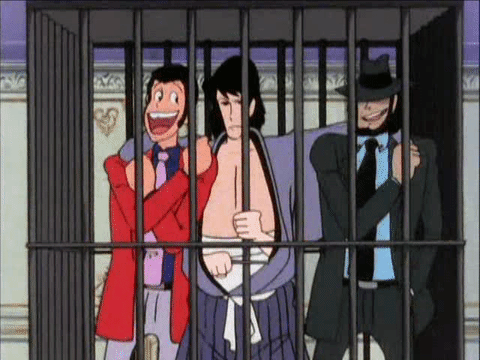
MERRY CHRISTMAS! And for those who don’t celebrate it, HAPPY HOLIDAYS! <3
#lupin#lupin iii#lupin the 3rd#lupin the third#rupan sansei#daisuke jigen#jigen daisuke#fujiko mine#fujiko#mine Fujiko#koichi zenigata#zenigata#goemon#goemon ishikawa xiii#ishikawa goemon xiii#Christmas#Xmas#obligatory Christmas post right after thanksgiving
62 notes
·
View notes
Note
If you don't mind answering, what are some things that you really, really wish you'd see more of in depictions of medieval Scotland/Early Modern Scotland?
I absolutely don’t mind answering, thank you for asking!
I’m told there are some better quality novels than there are tv shows and films, so there are some aspects that have been done in good novels (though I’m not so familiar with them). There are so many things though that could be done on screen:
- Chiefly I spend a lot of my time wishing that there was more attention paid to the actual geographical make-up of Scotland and its regional variety, e.t.c beyond just splitting everything into Highland/Lowland, or just portraying everyone as being part of a Clan in the Highland sense, or just sticking everyone in Edinburgh as if that was the only place where anything happened. Orkney was very different to Galloway, and the Borders were very different to the Western Isles, and Ross was different to Aberdeenshire.
Now if this was true for the sixteenth century, it is even MORE true for the eleventh, twelfth, and thirteenth centuries. Between the early Middle Ages and the end of the thirteenth century, Scotland was settled by a lot of different cultures- so in the twelfth century for example, much of the country (the traditional heartland of ‘Scotia’ north of the Forth) may have spoken Gaelic but Lothian had been settled by speakers of Old English some centuries ago and their language became Scots in time, and spread north of the Forth into Fife, Angus, Aberdeenshire and elsewhere so that by the sixteenth century it was much more widely spoken and the language of government. The south-west, especially the area around the Clyde and Glasgow was a British kingdom for a long time, speaking a language not dissimilar to Old Welsh- this kingdom had (sort of) disappeared by the mid-twelfth century but the language took a while to completely disappear. Up in Orkney, Shetland, and Caithness, rather like in Iceland and the Faroes, Norse settlers had taken over and Norse culture has still left traces there today. From the fourteenth century, Scots began to take over in the Northern Isles but there was still a very clear Norse background in the sixteenth century. Meanwhile in the Western Isles, the Norse newcomers did not manage to erase Gaelic so completely as they did in the Northern Isles, but they did leave their mark on the Hebrides, to the extent that the inhabitants in the Western Isles in the in the twelfth century were descendants of both cultures- they are sometimes called Gall-Ghàidheil in Gaelic, meaning ‘foreigner Gael’. Then over the course of the twelfth century more new immigrants moved in. The ranks of the nobility were swelled by Norman, Breton, and other French settlers- unlike England, there was no ‘Norman Conquest’, and the process was more gradual, but although the French language never had the same power in Scotland as it did in thirteenth century England, these settlers left their mark on the feudal system and other aspects of Scottish society, and in turn they too were affected by the cultures they encountered in Scotland. Other smaller pockets of immigration existed- immigrants from Flanders and the Netherlands, for example, were instrumental to developing Scottish towns and improving agriculture. In the east coast burghs of Fife and Lothian you can still see some architectural elements that may have been the result of trade with the Dutch- crow-stepped gables and red pantiles for example.
Although most of these cultures have altered and changed by the sixteenth century, the fact remains that the cultural backdrop to fourteenth or fifteenth century Scotland was a real mix- Gaelic, English, French, Norse, Flemish, British- and, perhaps, whatever it was that the elusive Picts left behind beyond their wonderful stone monuments. I have perhaps oversimplified things here but the point is that mediaeval and early modern Scotland was not a cultural monolith- something which both Scottish and foreign film-makers would do well to remember.
There are also changes to these regions across the years- Orkney going from being a Norwegian/Danish territory to becoming part of the Scottish kingdom, or the borders which had some of the best farmland and richest abbeys in the country in the thirteenth century becoming a very militarised and rather lawless zone after the Wars of Independence. I think it would be really interesting to see that portrayed on screen.
- Ok so that was the fundamental thing, apologies for the rant. But to go with that, more understanding of the landscape and architecture. In all fairness most tv shows and films involving Scotland, no matter how bad they are, at least have some lovely panning shots of the Highlands but there’s more to the country than Glencoe- you could really work with views like the sun on the sea from the Carrick coast or the beautiful if ruinous religious architecture- like the abbeys of Melrose or Arbroath or somewhere like Elgin Cathedral or Rosslyn Chapel or Inchmahome Priory.
- Costuming! Again this fits into the regional thing a bit, but it’s also more general. It’s a quibble I have with almost any medieval media but especially when it comes to Scotland people get really lazy with the costuming and just slap some shortbread tin stuff together rather than putting any thought into it.
- More traditional music! A surprising number of ballads and songs that are still popular among folk singers today are thought to have their roots in early modern if not mediaeval Scotland. And again the musical heritage of Scotland is varied depending on the culture it comes from.
- More properly developed female characters. Even though half the historical films made about Scotland are about Mary Queen of Scots, there are almost no good depictions of historical Scotswomen- and that’s NOT because there aren’t any interesting women in Scottish history before the modern period! There are lots of fascinating women’s stories from mediaeval and early modern Scotland, and although we are often frustrated by a lack of sources, we know they were there. More importantly, even if every woman was not a Certified Bad-Ass, as a whole women in Scottish history are not invisible and we can often see them in the records, whether operating in domestic, business, religious, or political contexts. Oddly, in their quest to show how Uniquely Misogynistic and Evil the Scottish nobility were to Mary Queen of Scots or Margaret Tudor or whoever, film-makers often end up ignoring women’s stories and therefore perpetuating the sexist view of history they claim to hate. (Though, yes mediaeval and early modern Scotland WAS misogynistic- but show me a country that wasn’t. Also it was misogynistic in a slightly different way to some other countries). I could list off dozens of interesting Scotswomen who lived before 1603- even though we sometimes can’t tell that much about their inner lives from the surviving sources, it’s obvious they were of some importance. And again it fits back into the cultural variety thing, because that was not limited to Lowland, Scots-speaking noblewomen.
- More art and literature and architecture and education and music and EVERYTHING. Scotland lost a LOT during the Reformation and due to Anglo-Scottish warfare (that’s what happens when the main centre of your kingdom is near to a border). But we know that, though it was sometimes an out of the way place, Scotland could be just as heavily tied into European cultural trends as any other northern country. And there are some beautiful surviving cultural artefacts that hint at a more vibrant past- both produced in Scotland (in the Gaelic and Scots-speaking environments) and imported from abroad.
- Equally on that note, more focus on its connections to countries other than England. Scotland had three universities by 1500, and yet many Scottish students still went to study abroad, especially in France, but also in England, the Low Countries, Italy, and elsewhere. An Italian humanist taught at the Abbey of Kinloss away up in Moray in the sixteenth century, and Scottish thinkers were in touch with other great minds of the day. Scots also fought abroad (see mercenaries in Sweden, or James IV’s support given to his uncle the king of Denmark, or the Garde Écossaise), and traded heavily across the North Sea (there were multiple Scots merchant colonies on the continent, not least at Veere). Scotland’s relations with Norway, Denmark, the Low Countries, the Papacy, Ireland (both as part of the kingdom of England and with individual Irish families), and other countries could be almost as important as its relationships with France and England. The eternal triangle of Scotland, England, and France, was not actually always the story- there were occasions when England and France played very little role in Scotland’s foreign affairs, let alone its domestic history.
- In particular an acknowledgement of the high quality of Scots poetry in the late fifteenth and early sixteenth centuries wouldn’t go amiss.
- This is one which applies to all mediaeval media- but a more varied and interesting depiction of mediaeval religion would be good. In Scotland, this was also linked to the way people saw their own history- any sixteenth century Scot would have known some of the native saints, and anyone half-educated might have heard the names of David I and St Margaret and Columba, and known where the great abbeys in the kingdom came from.
- Actually a basic knowledge of Scottish history and legends beyond a few famous names. For example family was important in noble society- just because the stereotypical The Clans Are Gathering model is massively inaccurate, doesn’t mean that noble families in Scotland didn’t care about ancestry and kinship. But it would be great if tv shows and movies could actually think about how to portray that- and it really shows how little some of these scriptwriters know about their characters when they’re supposedly obsessed with the honour of the clan but the only piece of their country’s history they know is the name William Wallace. If you’re portraying the Douglases- even the earls of Angus who weren’t directly descended from him- the legacy of Sir James Douglas would have been a source of some pride. For actual ‘clans’, you could be dealing with some of the clans in the west of Scotland who, like some families in Ireland, claimed descent from Niall of the Nine Hostages. Some family histories got warped along the way- the Stewarts, for example, seem to have forgotten that they were descended from a Breton named Flaald by the fifteenth century and instead latched onto a story involving a character named Fleance (the one who later appears in Macbeth). As for legends- you could have a lot of fun with the different kinds of fairy belief that existed in Scotland, from the Borders (where it inspired ballads like Tam Lin) to the Highlands, or you could bring up legendary figures that are shared with other countries like King Arthur or Fionn Mac Cumhaill or Robin Hood or Hector of Troy. Sometimes the legends even cross over into real life- Thomas the Rhymer, hero of ballads and fairytales, seems to have been based on a real person who lived in the reign of Alexander III; while stories about William Wallace and Robert Bruce often became folk tales in the tradition of other greenwood outlaws like Robin Hood.
I think it’s pretty evident that my main issues with depictions of mediaeval and early modern Scotland on tv and film are largely because it’s so utterly unlike anything I see in the historical record. I’d love to list specific details and characters I’d like to see portrayed on screen, but before we even get to that point, the whole Generic Portrait of Scotland needs to change, because it doesn’t currently feel very realistic or interesting. All I really want is for the same level of research to be done with regard to Scotland as is done for England or France or any other country- England is often portrayed inaccurately, but there’s still at least 200% more effort put in than for Scotland.
On that note though, James I’s career (or at least the early fifteenth century as a whole) has been ripe for a television adaptation for years. Also I’m personally fascinated by ordinary rural life, patterns of agriculture and landholding, e.t.c. so even just an ordinary story set in an early sixteenth century fermtoun would be cool. But I don’t really think these stories would make any sense to people if Scotland was just portrayed the way it usually is - a generic country with no culture beyond a few scraps of tartan and alcohol and Anglophobia.
Thank you for the opportunity to rant, and apologies for the screed! I couldn’t express my enthusiasm very concisely I’m afraid. I genuinely don’t mind if there’s some inaccuracies to portrayals of Scotland, but now all portrayals are exactly the same and almost wholly inaccurate so it gets frustrating.
16 notes
·
View notes
Text
Meeting and Dating Danny Walker

(Not my gif)(requested by anonymous/sorry about the wait, I had to get my hands on a copy of the movie)
(We’re just gonna pretend that Evelyn and him never got together, alright? Good. Also I’m not a historic genius so please don’t yell at me if this is factually inaccurate)
- You met Danny when you were stationed at Pearl Harbor as a mechanic. When Danny arrived at the hangar he was surprised to see you there crouched at the side of a plane with tools scattered around you.
- One of his friends caught him watching so he promptly informed him of who you were, making a joke about the two of you having to be “in close proximity”.
- Danny was immediately very nervous, he is so out of his element around new people… well new females, that he isn’t sure exactly what he should do. He stares for a little while longer getting caught by you in the process after which he all but runs out of the room.
- Every time he sees you in the chow hall or around the base he can’t help but sneak glances at you, so much so that the girls at your table start to take notice. Against your own will you’re led over to the handsome young man catching him completely off guard.
- Your “friends” introduce you between giggles. Danny can barely look into your eyes; his gaze just stays trained on the floor in front of him as opposed to the swarm of girls before him. He’s extremely uncomfortable but he manages to glance up and nod his head as a greeting complete with a tight lipped awkward little smile. You decide to relieve him of his torture and pull the girls away.
- Once you’re gone he curses at himself for not taking his chance but now that you’ve been “introduced” it becomes his mission to talk to you more. It starts with him greeting you whenever he sees you, then it evolves into mini conversations when you’re waiting in line for meals or working on one of the planes in the hangar, and finally he’s comfortable enough around you to just approach and talk like friends.
- You start to fall for Danny and well he’s absolutely in love with you but an army base isn’t the best place to get involved with someone so you try your best to just remain good friends. That goal doesn’t stick around for long after he shyly invites you to “see the harbor at sunset”.
- Listen I cannot think of a better first date than that so please; if you haven't already, watch that scene, if not the entire movie. It is quite possibly one of the most romantic things I have ever seen. Sorry that I’m cheating you out of a first date and kiss scenario but I don’t want to just rewrite what happens there.
- Lets just say everything went pretty much the same except you didn’t end up getting fully tangled in the hanging sheets.
- The next day he asked if you’d be his and you couldn’t help but say yes. The two of you can’t stop smiling for the rest of the day knowing that you’re finally together.
- No matter how much time you spend together he’s always so happy to see you especially when you first start dating. You can see just how much he loves you from the way he reacts to you being near.
- Visiting him at his base whenever you can.
- He gets downright giddy around you, it’s really adorable the way his eyes light up and the way he giggles. He just can’t seem to control himself, he’s just a little boy in love.
- A lot of caressing and nuzzling. He uses any excuse he can to touch you.
- He’s very soft with you.
- You can make him flustered very easily and he doesn’t know how he feels about that fact. His ears will turn red (you can always tell he’s nervous if he touches his ears, it’s a little habit of his), he’ll start to fumble with his words. If you touch his chest you’ll feel his heart pounding.
- Writing letters and notes when you aren’t able to see each other for a while.
- Beach dates.
- Sunbathing together.
- Watching sunsets although he spends a lot of the time just looking at you.
- Cuddling in his car.
- He lets you wear his pilot jacket.
- He thinks it’s cute when you wear his sun glasses. After the first time he saw you wear them he always offers them up to you with this cute little smile on his face.
- Teasing and joking with each other; your laugh is music to his ears.
- He carries a picture of you on him at all times.
- He sneaks you into his plane for a trip into the sky. He loves being able to impress you and share his love of flying with you.
- Getting to hear the history of places that you pass during your rendezvous in the sky.
- Helping him deal with his past and the trauma his father caused.
- Double dates with Rafe and Evelyn.
- Getting to hear all of his childhood stories. Him and Rafe both like to tell you about all the crazy things they did.
- Listening to his proud stories of Rafe when he’s M.I.A.
- Warm hugs.
- Holding hands.
- He’s more than happy to say he loves you pretty early on in the relationship. He’s faced with a lot of danger everyday and he doesn’t want to die without you knowing just how much you mean to him.
- He’s always ready to defend you honor.
- Nose kisses.
- Fixing his tie when it gets all crooked.
- Tugging him closer by his dog tags.
- He definitely gets jealous and depending on the situation he can either get a little aggressive or just deflate and sink in his seat.
- His best friends said it: he’s insecure. As much as you tell him that you love him he’s always going to second guess himself.
- And if you do want to keep your relationship a secret from, lets say your supervisors, then he’s going to feel kind awful about it even if he agrees on some level.
“I just don’t want everybody to know about us.”
“No, no, cause that would be embarrassing right?”
- Sometimes he’ll just agree with you no matter what he thinks which can be a good thing and a bad thing. He doesn’t want to fight with you but his actions may just lead to the two of you fighting anyway. It’s nothing you can’t resolve quickly and easily but it’s definitely something that will bother you in the moment. But don’t worry, the two of you don’t actually fight or argue all that much. You’re actually on the low side of the spectrum of couples arguing.
- Sneaking away from the base so that you can spend some alone time together.
- Being the first one to greet him every time he gets back from flying.
- He’s always ready to comfort you whenever you’re nervous or scared. Just whenever you need him know that he’ll always be there.
- He needs a kiss a day and thats an order.
- He loves when you touch him, just the softness of your hands and the emotion behind your caresses.
- Brushing away dirt and grease from his face after a long day at work.
- You’ll jokingly; and not so jokingly, tell him that he looks good in a wife beater and he’ll shyly chuckle while he tries to play off how happy it made him.
“Oh really now? Is that all I look good in?”
- He has you kiss his hand or wrist before he goes out flying or takes a trip somewhere. He likes being able to see your lipstick print on him whenever he misses you too much.
- He likes to lay his head on your chest or in the crook of your neck whenever you cuddle.
- He’s pretty damn strong and he likes to subtly show it off. Lifting you up with ease when he hugs or kisses you, carrying your bridal style, just happening to be in some state of undress while carrying some heavy box whenever you’re around.
- Getting gifted little weed like flowers that he’s able to pick for you before he meets you somewhere. Sometimes he’ll get lucky and manage to get away from the station long enough to buy you a proper bouquet. It’s worth the trouble when he gets to see the smile on your face.
- He treats you like you’re the most precious thing in the world.
- After the war is over the two of you get married; you have kids and live a perfect little life together in a nice rural area.
- AND YOU LIVE A LONG HAPPY LIFE, A LIFE HE GODDAMN DESERVES.
#pearl harbor 2001#2000s movie headcanon#2000s movie headcanons#2000s movie imagine#pearl harbor imagine#pearl harbor headcanons#pearl harbor headcanon#danny walker#danny walker pearl harbor#damny walker headcanons#danny walker headcanon#danny walker imagine
173 notes
·
View notes
Text
Did you slip in through open doors and sit down, just to look at me like that (every day) | Chapter 2 - Jaime I
Brienne doesn’t mean to lie to her father. She just wants him to stop trying to set her up with men who aren’t Jaime Lannister, whom she’s secretly in love with. Unfortunately, that’s exactly who eagerly inserts himself in the narrative as her fake boyfriend. And her father is coming to King’s Landing in two weeks.
Truly, what could go wrong?
Also on AO3. Still part of @jbmonthlymadness Mutual Pining March.
He is so, so fucked.
Not quite the same way he thought a week ago, but still very much fucked.
Jaime glances over to where Brienne is watching a game on the couch for what feels like the hundredth time this half hour. While that itself isn’t unusual, everything else is. Tenseness in her shoulders he isn’t sure he will lure out with a stupid joke and then slay with even worse one, the way they’ve barely spoken to each other today and that his heart is being harshly kneaded by some huge, clawed animal. He’d say it’s a lion, but considering his House that feels just a little cliche .
Though, according to Elia, he is a walking cliche and a terribly executed one, at that. He sighs, realizes that the beer bottle really isn’t where he’s blindly grabbing for it, and averts his gaze from his fake girlfriend. There is exactly one word too many in that title and it’s neither girl or friend. If only he could convince Brienne of the same.
Jaime has tried , he really has. Gotten up earlier to make sure he can prepare her coffee and go on a jog with her, kissed her goodbye on the cheek, pestered her into having a lunch during work hours and ordered takeout to arrive just after she got home the days he knew he’d be home even later than her, sent her obscure memes about animals he found on some nature activist group on Raventome that he frankly didn’t get but hoped she would and have a good laugh between work and more.
Granted, he does all these things regularly anyway (except the cheek kisses, but he isn’t sure they’re as much of a highlight of the day for her as they are for him), but now it’s daily. And it’s not a bother, like Brienne tries to convince him to think, and Jaime would gladly do it for the rest of the foreseeable future. Even waking an hour earlier, although he likes to think that if they were properly dating, he’d persuade her to explore other workouts they could do in the time without leaving the house.
Elia suggested it’s because she’s stressed about the convention, but Jaime knows better. (“Of course you do, that’s why you suggested to be her fake boyfriend instead of telling her you’ve been head over heels for her for years now.”) No, Brienne’s work has nothing to do with the skittishness in her eyes, the way she freezes when he presses lips to her delightfully reddening cheek, sometimes daring to brush corner of her mouth or lingering a second too long because her proximity makes him a little dizzy, or stumbles over conversations topics as if they are larger than boulders she can easily best when hiking. She doesn’t even shut down his flirtations anymore - instead she looks away and mumbles something or trips into the next topic.
Their new arrangement is the cause, and the realization has been rolling toward him like a house sized morning star down a gentle slope.
“Jaime? Movie’s starting,” subject of his sweet agony and worry calls out and Jaime realizes he has quite literally spaced out. And that perhaps his inner narrator is going a little overboard. Elia would have another laughing fit if she knew.
He grabs the snacks and another beer and presents them to her with a smile, falls heavily in his spot that earns a little bit of glare from Brienne because, of course, she’s concerned for the springs and one of these days he will tell her he can think of more interesting things to wreck their couch with. ‘One of these days’ feels like an awful stretch and ‘a mountainclimb later’ sort of thing, though. He heaves a sigh.
“Everything alright, Jaime?” she asks and he looks at her, armed with a bright smile and an easy no, when they crumble faced with concern that colors the blue of her eyes deeper, yet gilded shade like the last glimpse of sunset paints the sea. Of course Brienne finds time to worry about him, despite seemingly thinking she’s standing between two cannons labelled ‘work’ and ‘fake boyfriend’, ready to shoot.
He wants to pull her close and press a kiss to her furrowed brow so much he can physically feel an alternate reality, one where he’s braver and does just that, manifest.
Unfortunately, in this one Jaime only laughs and plops his head in her lap, facing the TV. “Of course I am, B. But if you’re so worried, you can always pet my head and tell me it’s going to be alright.” He likes it when she says that, the way she sets her jaw mulishly and seems to simply talk it into existence with sheer willpower and kindness. But never for herself, only others.
Brienne stills for a moment, then, much to his relief, makes indigant noise and pushes at his shoulder slightly but with no real force. “I’m not a cushion, Jaime” she tells him and he shifts just so he can grin up at her.
“C’mon, I’ve been a good boyfriend this week, have I not earned one lap cushion coupon? I must use it before it expires.”
“ Fake boyfriend,” she says seriously and Jaime looks at the screen again so she can’t witness his grin shattering like the window of Casterly Rock’s kitchen when he had been six and too eager while playing ball. He might feel even more chastised than after the lecture Tywin had given him, which had left a stone grinding sharp edge in his gut for a week.
“Fine, but I am not going to pet your head. You are not an overgrown housecat, no matter how much you may act as one,” Brienne relents, but by the end of the movie, she brushes back a strand he has shaken into his eyes and halfway through the second movie, she actually runs her hand through his hair and he barely manages to remain still, instead of following her hand like foam graces a wave’s edge.
All things considered, Jaime feels re-energized for the next week and his little war campaign on Brienne’s heart. He likes to think of it as war, though she is not a thing to conquer despite her truly formidable walls, just to trounce the narrative she has set for herself.
Once, before that fatefully shitty night when a pipe in his first own apartment burst and Brienne had invited him to stay over until it was fixed (and then he never really left), they had talked about who they would be in Targaryen and Stark eras, both revealing their dreams about knighthood.
Already knowing her love for ridiculous, historical(ly inaccurate) romance novels, he had joked if she’d not like ballads written about her instead, but Brienne’s face had shuttered and she had reminded him that no one would go to war for her . “I would rather defend the innocent and fight than stay home a sad and unmarried maid,” she had concluded, before going off about Blue Knight and other warrior women of Tarth. Jaime had already known back then that in any lifetime she’d be worthy of many great songs - of love and otherwise. But the bridge of their friendship was tentative still and he had had no intentions of being the one to lay the siege on her heart.
And when he had wanted to, he had already been so deep in the annoying, best friend role and still so utterly not having his shit together he didn’t feel he had the right to start the march. Someone better would surely come along. Except no one has, three years later still, and Brienne seems to think it’s a sign she only deserves a photoshopped suit-hanger and Jaime would rather be pierced endlessly by her glowering and risk her friendship that he treasures above anything he has ever known, than passively let her continue believing that.
For now, he’s only dying because of work, as they are currently quite swamped. It doesn’t help at all that his brain is a little (or a whole lot, but who’s counting) occupied with various Romance-Brienne-So-Hard-She-Doesn’t-Know-What-Hit-Her strategies. His plans for Friday come to immediate stop when he arrives home and finds Brienne fallen asleep at the kitchen table, her laptop’s screensaver of pixelated Kingslayer and Blue Knight from their favorite cartoon bouncing around the screen. He had installed it the first week of living here and despite her initial grumbling, she has never changed or disabled it.
This would be easier if Brienne’s one quirk when working at home wasn’t changing her workspace every few hours, as if it helps her think. It’s one of her most restless habits and typically, Jaime finds it adorable, but now that he has to haul half-asleep Brienne to her room he… Who is kidding, he also finds it endearing.
“Jaime, I can walk,” she scoffs, but leans on him anyway and when he helps her lay down on the bed, her eyes are soft and a little dazed and he thinks of early spring mornings, when nothing but the birds and clouds are awake yet, against the blueness of the sky.
Brienne curls up and he pulls a blanket over her and she gives him a sleepy smile, so warm that the consistent pull toward her feels anchored to the sun itself. He follows it and leans down and presses lips to her forehead. She exhales softly and when he pulls back, her eyes are closed, but there’s an almost sad turn to her lips.
“I really don’t want this to end, Jaime.” Her voice is so quiet he almost doesn’t hear - he wouldn’t if he wasn’t so close. His heart does an odd thing in his chest, something that would make it more of a rope dancer than a lion leaping through a ring of fire.
Jaime brushes a strand of her hair back, gently, in an attempt to reassure what odd fear has burrowed into her heart. He shouldn’t be so happy every time Brienne expresses she doesn’t want to lose him, but even her brilliant light can’t erase generations of carefully cultivated selfishness. “It doesn’t have to.”
“But it will.” And then she nuzzles deeper in the pillow and he knows this is a conversation to be finished (or maybe repeated) when she’s actually awake. Quietly, he walks out of the room and when the door has shut gently, bounces toward the living room with a grin that everyone would tell him begs for a punch.
There is hope for him yet.
#Jaime x Brienne#braime#braime ff#rainy writes stuff#my fic#I don't know how to format these things *sad noises*
36 notes
·
View notes
Text
Why Isn’t “Mass Shooter” a Modern Horror Monster?
Horror reflects the anxieties of the culture that produces it. In the 1950s, we got monster movies about radiation-mutated creatures and invaders from beyond the stars, mirroring our Cold War Science fears.
In the 1970s, as “Women’s Liberation” and birth control went mainstream, we see an influx of horrors settled on childbirth and children and family dysfunction.
And as the 70s bled into the 80s, while real-world serial killers were leaving behind trails of victims, the masked psycho was dominating the field with countless slashers.
But now -- throughout the 2010s -- mass shootings loom large our our collective American consciousness. Hardly a week goes by without hearing of one somewhere, and they inspire fear and terror. Yet we haven’t seen them show up to dominate horror media in the way serial killers do -- what’s up with that?
Horror-media discussion about gun violence under the cut!
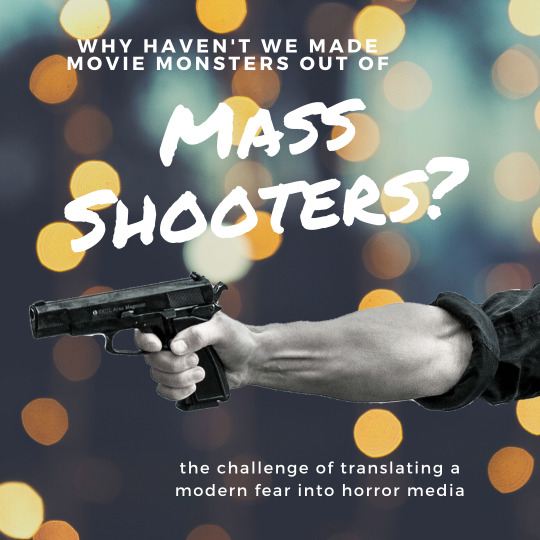
Before we get started, a caveat: There is media about school shootings. It’s just not usually horror. Most, as you can see from IMDB, is family drama: https://www.imdb.com/list/ls070532039/
And none of them are really particularly mainstream, not in the way we associate with slasher films.
So what’s the difference? Why is a killer with an axe more compelling as a film monster than a killer with a gun?
Some hypotheses:
Primacy: Because mass shootings are frequently in the news/public discussion, it’s always “too soon” - the real-life horror is too horrifying for entertainment. Sounds good on paper, but why isn’t that true for slashers? Those movies were popular when serial killers were at their most active.
Politics: Perhaps political motives are influencing the market. Since gun control is a contentious topic, maybe some powers are motivated toward censorship. But wouldn’t that also censor the family drama type movies? Why would it focus on horror especially?
Logistics: It’s just really hard to make a good horror movie about a mass shooting. Guns kill people pretty quickly and indiscriminately, so you lose the mounting suspense and intimacy of a killer with a knife and other similar horror/slasher conventions.
This last point, I think, bears some further consideration. The more I think on it, the more it seems that the things that make gun violence especially horrifying in real life are also things that make it very hard to put in a horror story:
Mass shootings happen, obviously, in mass. Most horror formulas require characters to be isolated and picked off one by one.
Guns kill people in ways that are impersonal and swift. If you’re killing a stadium of people with an automatic weapon, it’ll take just a few minutes. You can’t stretch that out into a long, lingering torture sequence or whatever.
Gun violence is indiscriminate. Wherever a crowd gathers, a shooter can start killing people. There’s no space for, say, the “horror rules” re: jock, slut, virgin, etc. because morality doesn’t play into it.
A killer methodically making his way through a sorority house, killing its members one by one lends itself more naturally to suspenseful storytelling than a gunman opening fire on a crowd. A killer leaving clues and taunting detectives lends its own narrative structure.
In that regard, it’s pretty obvious: We cannot make a slasher-style film or a torture-porn film about a gunman. It just won’t work.
But perhaps we’re looking at it all wrong. What if we viewed the mass shooter not as a serial killer, but as a force of nature? The disaster movie genre has ample cross-over with horror, and the general formula would work well for a mass shooter:
Introduction to a wide cast of characters as they maneuver into a vulnerable position
The disaster hits, and we move between individuals affected by the calamity, watching their initial reactions
In the ensuing chaos, characters attempt to escape further danger
The danger passed (for now?) some characters manage to survive, now irrevocably changed
Whether the disaster in question is an earthquake, a sharknado, or a school shooting, that formula should work. The key to success lies in the pacing and the large cast, allowing you to stretch out a relatively brief event into a detailed and tense narrative.
So why haven’t we seen that? Outside of, like, one made-for-TV movie I recall watching in the 90s, this presumably straightforward premise hasn’t gained much traction.
The Making of Monsters: Signs and Signifiers
Perhaps the real reason we haven’t seen a lot of horror stories about mass shootings is because there is already so much mythology and symbolism tied to these sorts of narratives, and that symbolism is at odds with the creation of movie monsters.
Guns carry a tremendous amount of cultural significance and baggage, at least in the United States. It’s why they’re so politically contentious. And when something is already heavily laden with symbolic meaning, it’s hard to turn that symbolism into something else in a way that will stick.
Point #1: Guns are a great equalizer. Unlike a knife or sword, skill doesn’t matter all that much when it comes to killing somebody with a gun. You don’t have to be strong or fast or have a ton of training. You just have to point it and pull the trigger -- if you do that enough times, and at a big enough target, you’ll probably hit something. This means that anyone can kill someone with a gun: a skinny nerd, a young child, a petite woman. Guns are the thing that give you, the underdog, a way to compete against them, the big strong enemy.
This leads to Point #2: Good Guys With Guns(tm). As absolutely anyone who has been on the internet for five minutes after Any Sort Of Bad Event will tell you, Bad Things can be stopped by Good Guys With Guns(tm). And while you can debate the merits of armed civilians protecting a group from harm against an active shooter, it’s impossible to deny that, historically, good guys have been armed. Police, military, armed militias, frontiersmen, etc. carry weapons. Which means that “guy with a gun” does not immediately translate, visually or thematically, as “threat” in the same way as wielding a butcher knife in a non-culinary context. A guy with a gun could, at a glance, be a good guy. A guy with a big knife is obviously a villain. Similarly, the Good Guys With Guns(tm) bleeds over into the horror genre. What would the zombie apocalypse be without headshots? How many horror franchises could have been cut short if someone had just shot the killer?
Finally, Point #3: Guns in media have special powers. Gun mythology in film and television is well-developed, with its own set of tropes and expectations. In movies, pointing a gun at someone will automatically make that person comply with whatever you ask them to do -- we even have vernacular about this, “nobody put a gun to your head” -- as if the gun were somehow more powerful than a simple threat and could in fact control behavior. Often, people who are shot in television politely fall over and die quietly; it’s a civilized end, without all of the screaming and thrashing (never mind where they’re shot or what that would would do in real life). And there are so many types of gun. We have a whole video game genre dedicated to it -- collecting guns, learning their various abilities, applying them situationally to achieve various goals. With so many established tropes, writing anything with new tropes and rules runs the risk of generating confusion, disbelief and even hostility in an audience.
So, with all of that in mind, it starts to become clear:
Writing a horror story about gun violence is difficult because guns carry so much mythic significance, and it’s impossible to write about them metaphorically while keeping it clear what that metaphor is.
If I write a story about an atomic-powered lizard who destroys a Japanese town with radiation, it’s easy enough to see that it’s a metaphor for nuclear warfare. But there is no similarly straightforward metaphor for gun violence readily apparent.
But it’s tougher even than that -- because guns themselves aren’t the only thing to have been mythologized.
The Myth of the Lone Gunman
Remember: Guns are the great equalizer.
This knowledge sits in the foundation of storytelling, not just in the fiction we make up but in the way we build narratives around mass shootings in the real world. There are certain tacit assumptions we make about gunmen that may or may not be accurate.
We have a certain narrative framework in place to explain school shootings, for example: The awkward, isolated young man who is bullied until he finally snaps and goes on a killing rampage.
Never mind that this narrative is not wholly supported by facts. It may be true in some cases, but certainly not all. And yet, go back up to that list of mass shooter movies on IMDB and look again at what the majority of them have in common.
This is problematic because, from a mythic perspective, people who are bullied and then stand up to their oppressors are heroes.
In Carrie, when Carrie White destroys the school after being humiliated on prom night, we’re on her side. It feels good to watch her kill all those people who were awful to her. It feels just and righteous and imminently satisfying.
When Spartacus leads a slave revolt, we cheer. When Daenerys Targaryen kills all the masters and uses their heads as mile-markers, we feel triumphant. When Arthur Fleck shoots the smug talk-show host on live television, we think, Well, he had it coming.
Oh, sure. We pay lip service to being horrified. And these dark heroes might die at the end, receiving some karmic retribution for the price of their revenge. But can you say, truthfully, that you have ever once watched a story about an underdog killing his bullies and felt sorriest for the bullies?
So: This is the problem with our cultural narrative about the school shooter. Purposely or not, it puts the shooter in the role of hero.
And not only is that irresponsible, it’s just downright inaccurate.
When Stephen Paddock opened fire on a concert and killed 58 people, he was not firing back at his oppressors.
When Omar Mateen shot up a night club in Florida, he wasn’t getting revenge against his bullies.
When Adam Lanza slaughtered 26 people at an elementary school -- 20 of them young children -- he obviously was not giving his victims what they deserved.
In the real world, mass shooters might be motivated by political ideology and a desire to promote fear -- ie, terrorism. They might be unhappy with some aspect of their lives and decide to “punch down” at a vulnerable group in the worst possible way. They might be looking to become the heroes of certain media narratives, to secure some kind of fame or notoriety. They might want to kill themselves in a way that hurts a lot of other people at the same time. There are lots of reasons why people might commit mass murder.
But the important thing is that the victims are, overwhelmingly, not bullies and oppressors. They are people. Just innocent people in the wrong place at the wrong time. Because mass shootings aren’t really about personal vendettas; they’re about mowing down a bunch of strangers in a few minutes at an impersonal long range.
So here’s my final thought on the topic: We SHOULD tell horror stories about mass shootings.
It’s a topic that’s timely, and it’s a scenario that’s frightening. There’s no reason not to tell these stories. But to make it work -- on a logistic and socially responsible basis -- we need to change our treatment.
Going back to the “disaster movie” idea: It’s time to treat mass shooters in fiction as forces of nature, as oblivious and blindly destructive as a hurricane. It’s time to center the focus on the victims. Never mind the killer and what led him to this moment. Let’s take a minute to think about the people caught in that situation -- the people who fear for their lives, who try to help one another, who fight or flee or hide once the first shot is fired. Let’s write about the moments of humanity shared by two strangers crouched behind something while shots fire all around them. Let’s write about the horror of having your perfectly normal, mundane day suddenly and irrevocably shattered by a stranger with a gun.
There is horror there, real horror, that can be mined and cultivated and turned to art. And it seems to me that embracing that, and shifting the cultural narrative away from valorizing the lone gunman, would be good for art and society.
Are you ready to tell that story?
I am.
#horror#horror media#horror movies#how to write horror#horror stories#gun violence#mass shootings#trigger warnings#long post#Deep dive#horror analysis
73 notes
·
View notes
Text
Disneyland Modern AU
For @littlelonghairedoutlaw‘s PotO AU Fic Contest!
Summary: While at Disneyland, Christine is determined to make Erik have fun and figure out his favorite ride.
Rating: PG or K+
Ship: Erik/Christine kinda. More friendly than romantic
AU: Modern
“Erik, please at least try to enjoy yourself.”
A noncommittal exhalation of breath, too light to be a grunt, was the response. The dour look on Erik’s face only worsened as more people lined up behind them, becoming more crowded.
“The ‘Happiest Place on Earth’, indeed,” he monotoned.
Christine sighed in exasperation and rummaged through her petite backpack as the line moved a step closer to the entrance to the park.
“Look, I can’t think of anyone who doesn’t like at least one-” she held up her index finger to emphasize her point, “-one thing at Disneyland.” She withdrew a set of plain Minnie Ears, complete with a pink bow and situated it on top of her head. It barely peaked out from her massive amount of fluffy curls, but it remained steadfast.
“You cannot be serious with that ridiculous thing.”
“When in Rome, do as the Romans do!”
“I have been to Rome and they certainly do not care about the doings of tourists. They would rather-”
“Erik, it’s just an expression,” Christine said with a roll of her eyes as he continued muttering about barbarians. Perhaps this was not the best idea she had come up with. She was determined to have fun with Erik in one of her favorite places, but he always had to make things more difficult. His rotten mood would not spoil her magical day, and she was focused on making his day magical as well.
“You said you wanted to go with me,” she reminded him as she passed her ticket along to the taker. A scant, a delightful tinkling of approval, and she passed through the turnstile.
She waited on the other side, watching Erik fidget with his hands and recheck his prosthetic nose, complete with fake mustache. He was overly anxious, she realized, with a sinking feeling. He was denied his mask, for they were not allowed in the park, and so he settled on some makeup and a detachable nose. Despite his disguise, he wore dark shades to try and hide himself as much as possible.
Erik held his breath and passed through the turnstile, as if he was going to be tackled by security and thrown out of the Magic Kingdom, and worse yet, be tossed into California Adventure, but he passed through without any protestations. He exhaled in relief.
“Well, now we’re here so let’s get on with it,” he said. Christine grinned and grabbed his arm.
“First stop, the Mad Hatter’s!”
“WHAT?”
Walking at a determined pace, but walking nevertheless, Christine pulled Erik by the elbow straight down Mainstreet. They passed by window panels that depicted scenes of various Disney movies. “These were my favorite as a kid,” she told him, imitating a grinning Ariel rocking back and forth. “They would release the whole movie in these little scenes for whatever came out that year. They stopped doing that, though…”
Erik leaned in and inspected the window next to hers. Cinderella was waltzing with Prince Charming, the clock tower looming behind them.
“Let’s go!” And he was yoinked away. Christine inhaled the intoxicating aromas wafting throughout the street as they headed toward Sleeping Beauty’s Castle. Confections enticing her with their sweet promises nearly stopped her in her tracks, but she had one thought in mind that she dare not tell Erik until they arrived in Fantasyland.
“ABSOLUTELY NOT,” he declared as she held up a simple black Mickey hat.
“Everyone gets one, Erik!” Christine said joyously. Despite his black sunglasses, she could feel his piercing gaze.
“Christine, you’re wasting your time and your money.” She handed over the money to the cashier, who was eyeing Erik with uncertainty.
“Ma’am, we have other hats that-”
“Just ignore him. He’ll grow to love it.”
“Would you like that embroidered?”
“NO HE WOULD NOT,” Erik interjected.
“Yes please! Erik, if you wouldn’t mind. That’s E-R-I-K. No ‘C’.”
“We will do that in one moment!”
“Wonderful! Thank you!”
The embroidery machine whirred to life as Christine turned back to Erik with a grin to match the Cheshire Cat’s above her.
“Fie, a pox on both your houses,” he glowered at her, but she just continued to smile without regard to his fuming.
“Hate me all you want, but this will help you blend in with everyone else.” She was handed the Mickey Ears, smartly embroidered in swirling yellow letters with “Erik”. She stood on her tip toes and snugly placed it on top of Erik’s head, securing the elastic bad around his chin. “There! You can throw it away after today, but for now, you’ll have plenty of Disney fun with me!”
He slumped his shoulders in defeat. “If I must…”
“You must!” Christine told him cheerfully, because damn it all, she was going to make sure this day was fun for him. Even if it killed her.
Or even if it killed him.
At Christine’s insistence, they hit Fantasyland first, “since we’re already here,” she explained, “although Adventureland is the best, by far.” His arms were tightly folded on the Mad Tea Party Teacups, as Christine dutifully spun them faster and faster, laughing all the while. His sour disposition never faltered through Peter Pan, Alice in Wonderland, or King Arthur’s Carousel. Christine could have sworn she saw the slightest crack of a smile on Mr. Toad’s Wild Ride upon their exit into Hell. But however quick it might have been, it vanished before she could have been certain.
“Now I know this next one will be your favorite!” She cheered gleefully as they soared up and down through the air on Dumbo -
“-a character who faced discrimination and torment on a daily basis until he had capital value,” Erik commented with a growl.
Christine’s face fell as their Dumbo rose up into the air with the other elephants before making their descent.
“You don’t have to put it like that…” she said softly. She shook her head, “no matter! Dumbo isn’t your favorite.”
As they exited the ride, she stuck her chin out defiantly and posed like Peter Pan. “We will find what you like today!”
Erik adjusted his dark glasses delicately, avoiding too much contact with his fake nose.
“That’s highly unlikely.”
__________________________________________________________
By the afternoon’s end, Christine was in a slump. The cheer had been sapped from her, despite her earlier exuberance. She sat defeated on a bench in New Orleans Square, face cradled in her hands. Even her hair lost its usual fluffy bounce, and her curls were bedraggled. Erik approached her, holding two churros from the nearby cart. Christine made no acknowledgment of him.
“Christine, I acquired the confection you demanded.”
She rotated her body away from him and focused on Tom Sawyer’s Island. She watched as the raft loaded with people and drifted away from them, toward the island.
“Christine?”
She continued to ignore him and instead gazed at all the happy families, couples, and others enjoying their time in the park.
Erik stiffly sat beside her, his body rigid in a perfect posture, holding out the churros mechanically. He stared out alongside her, in the direction of her gaze.
“Christine, you are obviously upset, and it is highly likely that the variable that caused you to be upset is me.” He took an audible breath, and continued to stare straight ahead, but Christine shifted her gaze to him. “I cannot begin to rectify the situation and my behavior if all I can infer is that you are sullen.”
Her mouth was set in a line, not willing to smile or frown. Yes, she was irritated with him, and this false way of apologizing without outright doing it grated on her nerves. At least he was trying to be a bit more considerate to her emotions.
“Yes, Erik, I’m ‘sullen.’ Any suggestion I have, you immediately turn it into something negative. I’m trying to show you something you’ll enjoy, but you keep nit-picking and draining all the fun out of it!”
“That’s hardly the case-” Erik began to counter, but Christine cut him off.
“-YES, it is!” She stuck out her hand and began counting on her fingers all the dismissals and critiques he had. “You hated Tomorrowland because you complained about all the outdated technology and how you could create better animatronics.”
“Why have a ride that is essentially recreating the traffic we experienced to even get to this park? It’s absurd!”
“You didn’t like Space Mountain because you calculated the speed and scoffed at how slow it actually was.”
“It’s all illusions, Christine. It’s only 28 miles per hour-”
She shoved another finger in his face and she continued her infraction count, “- you were utterly disinterested in Big Thunder Mountain,”
“-ain’t, Christine. Thar ain’t no way that would appeal to me. And the excavation of that Tyrannosaurus is completely ludicrous-”
“-You were whining all throughout ‘Galaxy’s Edge’,”
“I was just saying the Empire is a bunch of fascists and the Rebels are terrorists-”
“IT’S STAR WARS, ERIK!!” Christine shouted, throwing her hands up in the air. “AND THEN when we went to Critter Country,”
“-crawling with tiny children I might add-”
“-you described the Winnie the Pooh ride as a fevered dream you had on opium once,”
“-to be fair, it was a rather good dream-”
“-and then you kept saying how exploitative Song of the South was and ruined Splash Mountain. HOW DID YOU MANAGE NOT TO GET WET? I’m STILL ringing out my hair and that was nearly an hour ago!”
“One can take a measured approach to these things, my dear-”
“-AND you would not SHUT UP about how historically inaccurate Pirates of the Caribbean was!”
“NO ONE,” Erik rose to his feet, “IN THE ENTIRE WORLD, HAS EVER WORN HATS THAT LOOK LIKE BUCKETS! THERE’S NO HISTORY HERE, CHRISTINE!”
Christine jumped to her feet and stood defiantly to Erik, despite him still looming over her, “IT’S A RIDE, ERIK! IT’S MAKE BELIEVE! PRETEND! IT’S SUPPOSED TO BE FUN!!”
“BUCKET-HATS!!”
As the two of them panted in their frustrations, a baby somewhere nearby began crying. Christine broke first and flopped back down on the bench with a groan. “I just wanted you to enjoy yourself.” She slowly removed her headband and traced her fingers over the Minnie Ears. “This place means so much to me… My Dad and I would-” her nose got that peculiar warm tickle that means tears were soon to follow. She shook her head to rid herself of that anguish. “Disneyland is just my happy place, and I wanted to share that with you, too.”
Erik lowered himself down onto the ground, to look up at Christine as she fought her emotions. He removed his dark sunglasses to be more open with the woman sitting in front of him.
“I have been having fun,” he told her softly. “Perhaps my enjoyment of things is more unconventional, but spending this day with you is more precious to me than anything else.”
A half-smile appeared on her lips. “Crowds and all?”
He offered her the churro as he rose from the ground to sit beside her. “Suffocating crowds and all.”
Christine smiled into her churro, biting into it quietly as she and Erik sat in thought. She leaned against him, resting her head on his shoulder. His entire body tensed and grew rigid at the sudden intimacy, but he slowly relaxed. He hesitantly lifted his arm, and with taking pause, wrapped it around Christine’s shoulders. Christine had nearly finished half of her churro before Erik finally tasted his own. The crispy sweet crust pairing with the fluffy light middle delighted him.
“Christine!” He exclaimed, “these are incredible!”
“Yeah, Erik. Disneyland churros are amazing. I always need to have one. OH! And the beignets, too.”
“I don’t think you fully comprehend the magnificence of this pastry! It’s entirely delightful!” He took another bite, “sweet, but not overpowering!” Another bite. “The delicate taste of cinnamon!” Another, “the exquisite crunch with the decadent exterior!”
Christine covered her mouth with her hand, struggling to keep from laughing at Erik’s sudden enthusiasm. As he continued exclaiming his delight, probably with more gusto for Christine’s benefit, the adhesive on his prosthetic nose began to disintegrate. Her amusement quickly turned into concern, knowing how poorly he would react if it fell off.
“Erik,” Christine cautioned him, suddenly serious, “Erik, maybe you shouldn’t-”
And that’s precisely when his nose fell into his lap.
Erik yelped several octaves higher than Christine thought he was physically able to, clamping his hands over his face instinctively. His mustache hung limply above his thin lips, exposing the jagged scar of his former cleft palate that ran up to his nose cavity.
The cry made several people look in their direction, certainly not aiding in Erik’s mortification.
“The poor guy dropped his churro!” Christine explained, putting on her Stage Voice and gesturing to the fallen delicacy.
That seemed to satisfy the onlookers as Erik curled up on himself, hiding his face as best he could. Christine rubbed his hunched back soothingly as he silently suffered.
“Shh, shh... Erik it’s okay! There’s a bathroom nearby where you can apply it again. Although honestly,” she said with a shrug, “no one will care if you don’t reapply it. There are so many people who come here with all different backgrounds and abilities that-”
“Christine, save me your princess fairy tales for the moment,” Erik hissed through gritted teeth. “I’m more Victor Hugo’s Hunchback than Walt Disney’s, and people aren’t kind no matter where or when we are. Or perhaps I should just kidnap a princess into being my prisoner like some kind of Beast. That will turn out well!”
Silenced by his sardonic words, Christine helped him to his feet, and hurried him along to the restrooms in New Orleans Square. They were mercifully close, and as Christine was just about to tell him as such, a small boy approached Erik.
“Jack Skewwington!” He squealed gleefully, bouncing up and down, pointing at Erik and back at his shirt that displayed the character.
Christine had to bite her lips to keep from laughing and making the situation worse as Erik blushed in fury. The mustache had vanished somewhere along their short walk, fully exposing Erik’s death-like face.
The small boy hugged Erik’s spindly legs in his delight at finding the Pumpkin King.
Erik’s jaw clenched, unsure of what to do. His hands flexed into fists at his side, wanting to throw the child off of him or pat him on the head awkwardly.
“Owen!!” Cried a nearby woman, running up to the boy. “I don’t think he likes that, honey,” She held out her hand to Owen and beckoned him back to her. “But Auntie Pwincess...” he whined taking her hand. She turned to Erik, “I’m sorry, your Disney-bound is really good. He thought you were Jack,” she said breathlessly, trying to excuse the young boy’s behavior.
“It’s FINE!” Christine interjected before Erik could say anything, “he gets that all the time. You gotta keep the secret, okay?” She pressed her finger to her lips and winked at the boy. “Have a good Halloween!” She waved to the pair as Owen waved back. “Bye bye!”
Erik stood there in shock, unable to process what had happened. Christine handed him a tube of eyelash glue and his fallen nose. He took them mechanically and left to enter the restroom. After a few minutes, he returned, adjusting his sunglasses back on his face and lightly tapping his raw upper lip. A few flecks of glue remained, but only Christine would notice.
“I suppose that’s what you get for wearing black pinstripes at Disneyland,” she laughed sheepishly, trying to make light of the situation.
“I’d rather not discuss it,” he said, with all of his curt authority, but there was a certain softness to his voice. “Where to next?” He asked Christine, offering his arm with jerking, stilted movements. She took it and smiled.
“My favorite ride, but you have to promise not to criticize it!”
Erik gave her a mock aghast look. “I would NEVER-!”
“Erik. Promise me.”
“Oh, all right, I promise. I’ll hold my tongue. Now which one is it?”
Christine lifted her arm to the towering manor before them. “The Haunted Mansion!”
“Haunted, hmmm? I should really leave my card if they want a proper Phantom…”
Ignoring him, Christine giggled with excitement, bouncing not too unlike their little visitor from before, and dragged Erik along behind her. She was all but skipping through the Pet Cemetery and pointed out all the puns on the various tombstones and mausoleums.
“I. M. Mortal? The evidence proves the contrary, sir,” Erik said. Christine shot him a dirty look and he held up his hands in innocence.
“It was a joke, Christine! They’re all deceased.”
She narrowed her eyes at him and whipped her hair at him with a small, “hmpf!” She strolled quickly into the front doors of the mansion as a glassy eyed Castmember ushered them in with a deadpan, “look alive. Right this way.”
Erik squeezed his way past through the bodies of the crowd to get back to Christine’s side. She gazed up at the foyer in awe, excitement vibrating from her being.
“When hinges creak in doorless chambers, and strange and frightening sounds echo through the halls.” Christine clasped her hands in giddiness, mouthing the words along with Paul Frees’s narration. “Whenever candlelights flicker where the air is deathly still — that is the time when ghosts are present, practicing their terror with ghoulish delight!”
“... well I feel called out,” whispered Erik in Christine’s ear. Christine snorted in laughter.
“Welcome, foolish mortals, to the Haunted Mansion. I am your host, your Ghost Host. Kindly step all the way in please, and make room for everyone. There’s no turning back now.”
One of the walls opened to reveal another room. The group shuffled their way in as another Castmember stated in the deepest voice he could muster, “Drag your bodies away from the walls and into the dead center of the room.”
“Are these puns going to continue throughout this journey?”
“Yes, Erik!” Christine hissed at him in a whisper. “And if you don’t like it-”
“Our tour begins here in this gallery, where you see paintings of some of our guests as they appeared in their corruptible, mortal state.”
“You misunderstand, I love it entirely.” Erik looked longingly at Christine, aching to make her happy. She inadvertently was standing similarly to the ballerina-tight rope walker portrait stretching just behind her.
“Your cadaverous pallor betrays an aura of foreboding, almost as though you sense a disquieting metamorphosis. Is this haunted room actually stretching? Or is it your imagination — hmm?”
“Oh. Well good!” The smile she gave him was dazzling.
“And consider this dismaying observation: this chamber has no windows and no doors… which offers you this chilling challenge: to find a way out!” Christine echoed the laugh of the Ghost Host with chilling accuracy. “Of course... there’s always my way-!”
Christine released a practiced blood curdling scream as lightning flashed and the hanged body of the host appeared above them. Erik jumped at her terrifying cry, but she was still smiling in delight. The lights flickered back on and a door slid open revealing another hallway in the labyrinthine manor.
“Ohhh, I didn’t mean to frighten you prematurely,” Christine cooed along with the dialogue, smirking at Erik. “The real chills come later. Now, as they say, ‘look alive,’ and we’ll continue our little tour. And let’s all stay together, please.”
“I was concerned about your safety,” he huffed, a slight blush rising to his sunken cheeks. He adjusted his Mickey Ears as they had skewed in his jump.
“You were scared, just admit it!” Christine laughed as they walked through the hallway, where the curtained windows showed a thunderstorm raging outside the Mansion. To their right, more portraits flickered with the lightning, showing not all was as it seemed.
“Christine,” Erik said sensibly, “a hanged body is something that does not frighten me.”
“I’m going to ignore that,” Christine told him, peering at the two busts whose faces turned to follow them down the line queue.
“There are several prominent ghosts who have retired here from creepy old crypts all over the world. Actually, we have 999 happy haunts here — but there’s room for 1,000. Any volunteers?”
Christine nudged Erik with her elbow. “They’re looking for a new ghost. Need a new job?”
“If you insist on lagging behind, you may not need to volunteer.”
Erik tapped his finger against his lips in thought. “That’s not a bad notion…”
“You’re not ACTUALLY considering it, are you Erik?” The two of them stepped onto the moving walkway and slid into their doom buggy carriage to whisk them off into the bowels of the mansion.
“Why not,” he mused. “Put my skills to the test, and so far, I am pleased with the traditional techniques they’ve been utilizing for their optical illusions.” The safety bar lowered on them, bumping against Erik’s gangling legs. “I find the older tricks are the most effective.”
“We find it delightfully unlivable here in this ghostly retreat. Every room has wall-to-wall creeps, and hot and cold running chills. Shhh, listen!”
Their ghostly carriage rocked and swayed, providing them the direction where to look as they journeyed down the Corridor of Doors. A floating candelabra surrounded by a hall of mirrors that led to nowhere illuminated the scene to the right as groans from a moving casket cried out on their left. Leering eyes warped the wallpaper pattern into a frightful brocade as narration continued.
Christine cooed in contentment as she leaned back in the Doom Buggy and watched the creeping horrors as they passed by. Several doors rattled and growled with threats of danger on the other side.
“Ha! They used the effect revolutionized in ‘The Haunting,’” Erik hummed in his amusement as they passed by a particularly intimidating bulging door, the wood creaking with every ‘breath’ of movement. “In fact,” he craned his neck around and tried to carefully observe the other doors, despite moving away from them, “this whole hallway is...a marvel...”
Christine gave Erik her best vacant expression and told him, “the house is alive..!” He actually chuckled at her reference. Christine was pleased at his amusement.
“It’s about time you found something you like-”
But she was cut off by the seance Madame Leota was conducting as they swiveled into a pitch black room with instruments floating all around them.
“OoooOooh, a medium,” Erik wiggled his spidery fingers in sarcastic spookiness, “how obnoxious,” he scoffed, but his smile remained.
“Do not mock the great Madame Leota!”
“Goblins and ghoulies from last Halloween, awaken the spirits with your tambourine!”
Their vehicle turned and face the Seer, to reveal she was not seated at her seance table in front of the crystal ball. Rather, she was a disembodied head inside the ball, floating above the table. The jingling beat of a tambourine was the response, as if the ghosts of the mansion were responding to her words.
“Creepies and crawlies, toads in a pond, let there be music from regions beyond!” Music began to play as they were ushered from Leota’s chamber and into more darkness. Their Ghost Host whispered in their ears as they ventured deeper into the Mansion.
“The happy haunts have received your sympathetic vibrations and are beginning to materialize. They’re assembling for a swinging wake, and they’ll be expecting me… I’ll see you all a little later.”
The organ music swelled around them with the melody of the mansion as ghostly apparitions began swirling in a waltz in a ballroom before them. Duelists stepped out of their portraits to fire, spirits were piling in from a crashed carriage, gathering around to feast on the rotten food on an elongated table. And a man in a top hat played the organ with great vigor, despite it being off-key.
“The Pepper’s Ghost illusion, of course,” Erik whispered to himself.
“My favorite part!” Christine squealed in a hushed voice.
“Yes,” he murmured, entranced as well, his eyes focused on the organ player, “I can see why…” Listening to the repeating music, his finger unconsciously swayed to it, as though he was conducting it and learning along. Christine hummed along, dancing in her seat as they turned away from the spectacle and into the attic, where the thudding of a heartbeat echoed in their heads. Scattered before them were portraits of various couples in their wedding attire. The woman, all the same in each one and smiling pleasantly, but every groom was different. Then, the swing of an axe, and the heads of the grooms vanished. A piano with only the shadow of a pianist played a discordant wedding march. At the end of the attic, was Constance Hatchaway, the bride herself, in her glowing ethereal splendor.
“I do,” she whispered innocently, her bouquet revealing an axe, “...and I did,” she hissed, the axe shining with light. “Here comes the bride…”
“I know I’m desperate,” Erik remarked, “but I’m not that desperate for a bride.”
Christine scoffed, “you sure about that? OH! HERE HE IS! THE HATBOX GHOST!”
Christine leaned forward as they left the attic and a ghost with skeletal features, not too unlike the man sitting next to her, appeared. He wore a magnificent top hat and a hatbox hung from his hand. His eyes looked suspiciously around before he laughed sinisterly. His face suddenly vanished from his body and reappeared inside his hatbox.
Their carriage tilted backward away from the mansion and into the backyard cemetery. Christine laughed and clapped her hands in delight.
“What was so remarkable about him?” Erik puzzled.
“The rumor of the Hatbox Ghost is amazing! He was put into the Mansion on the opening days, but then he vanished!”
“The animatronic… vanished?”
“Yes! They never saw it again! They just put him back in a couple of years ago. But can you imagine? Almost fifty years without Hattie and his image is all through the mansion! But now he’s back and better than ever!”
The recurring music suddenly shifted from melancholy and dour to exuberant and lively. A raven cawed at them during their descent out of the main house and into the graveyard. They passed the terrified groundskeeper and his dog, both trembling in fear as the ghosts and corpses rose from their graves to have a frightening soiree.
Christine bounced along to the music and sang along to the macabre choir,
“When the crypt doors creak and the tombstones quake,
Spooks come out for a swinging wake.
Happy haunts materialize and begin to vocalize.
Grim grinning ghosts come out to socialize!
Now, don’t close your eyes and don’t try to hide,
For a silly spook may sit by your side.
Shrouded in a daft disguise, they pretend to terrorize.
Grim grinning ghosts come out to socialize!
As the moon climbs high o’er the dead oak tree,
Spooks arrive for the midnight spree.
Creepy creeps with eerie eyes start to shriek and harmonize.
Grim grinning ghosts come out to socialize!
When you hear the knell of a requiem bell,
Weird glows gleam where spirits dwell.
Restless bones etherealize, rise as spooks of every size!
She cackled and continued right from the top again. Ghosts popped up from behind tombstones, a Mummy was having tea, four busts sang very expressively, and several opera singers belted out their tunes.
Erik nudged his elbow against Christine and nodded to a large woman’s ghost with long Valkyrie braids, projecting out her notes. “I wasn’t aware Carlotta was employed here!”
Christine sputtered in laughter as they left the graveyard only to be accosted by three hitchhiking ghosts, thumbing their way out.
“Ah, there you are!” The Ghost Host’s voice cooed, “and just in time… there’s a little matter I forgot to mention — beware of hitchhiking ghosts! They have selected you to fill our quota, and they’ll haunt you until you return! Now I will raise the safety bar, and a ghost will follow you home!”
Christine wiggled in her seat, eagerly peering in the mirrors displayed before them to see which ghost would select them. However, all that they saw were their own reflections, Erik doing everything he could to avoid looking at himself
“That’s odd… it must be down… usually a ghost appears next to you…” She looked over at Erik, who shrugged in response.
“...nevermind, a ghost is next to me,” she commented dryly.
A lulling melody lured them out of their Doom Buggy as the bar lifted and they stepped out onto the moving platform. Christine looked back as her palm sought the handrail, carrying them back up to the world above.
“Hurry baaaack… Hurry baaaack…” The small bride-like figure of Little Leota taunted them as they headed upward.
Erik rested his hand on Christine’s shoulder. “Oh, we plan to.”
Christine gasped in delight, her eyes sparkling with unmitigated joy. “Again?”
Erik nodded, “how else am I to construct a summer home?”
#potoaufics#littlelonghairedoutlaw#contest#phanfic#phanfiction#phantom of the opera fanfiction#my writing#E/C#Disneyland#Modern AU#AU#Alternate Universe#Erik#Christine Daae#Phantom of the Opera#Disney#tallestsilver#Tallest Silver
178 notes
·
View notes
Photo
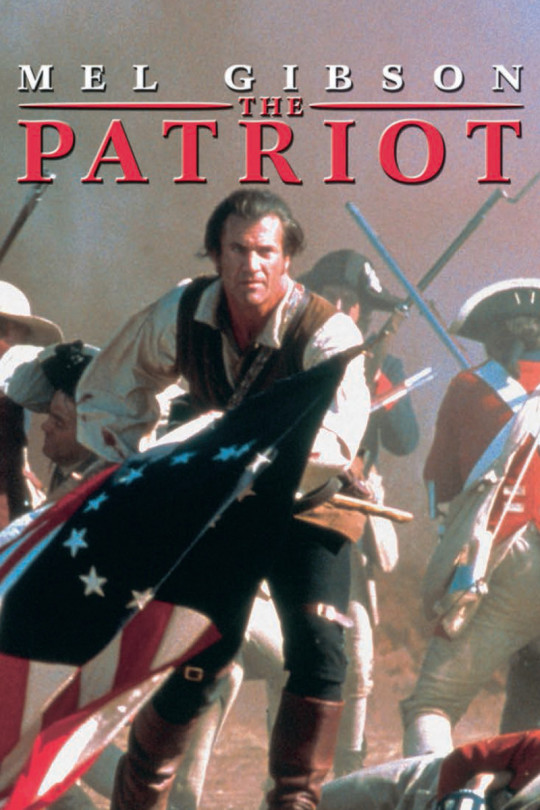
The Patriot is a weird movie that has somehow grown on me? I think it’s a good movie, but I don’t know if it’s a great movie, and it’s about as subtle as a brick to the face. I wouldn’t say it handles the subject matter very well, cutting a few corners to make the story work.
So The Patriot tells the story of Benjamin Martin (Mel Gibson), a South Carolina...farmer? Plantation owner? Whatevs. He’s a widower with several kids and a veteran of the French and Indian War, so despite the beginning of the American Revolution going on, and his oldest son Gabriel (Heath Ledger) joining the Continental Army, he advocates a peaceful solution to the conflict with Britain because he doesn’t want to be drawn into another war. But when a British dragoon leader Colonel Tavington (Jason Isaacs) shows up and shoots his son, Martin joins the war effort, and attacks the British in a brutal guerilla campaign leading a group of local militia.
If you’re from South Carolina, you’ve probably heard about this movie quite a lot, in part because it takes place and was filmed there, but especially because the protagonist is heavily based on American Revolutionary hero and militia leader Francis Marion (and some other South Carolinians from the time but they didn’t have a cool nickname so that’s the one we usually go with). It’s not precisely an accurate depiction of Francis Marion’s life by any means, other than he was a guerilla militia leader in the Revolution that hung out in the swamps. For starters, Benjamin Martin’s anti-slavery, which is not quite the attitude Francis Marion held towards the practice (but fellow SC native and Revolutionary hero John Laurens certainly did!); his plantation is staffed entirely by freedmen--a facet of the character that even Mel Gibson felt was a bit of a cop out, avoiding a chance to do a warts-and-all look at American history. Admittedly, this is a bit much to ask of the movie, I think. And Roland Emmerich, probably.
Still, it’s a bit jarring to have a subplot about one of the militiaman, a black man, finding out that the Continental Army will free any slave that fights for the Revolution for a year when that’s not really a thing that happened at all. And Francis Marion wasn’t nearly as great of a guy as Benjamin Martin; although that may be exactly why there’s a fictional stand-in instead of the actual historical figure in the lead role.
There is often a conversation about the atrocities that the British (mostly Tavington, if we’re being real here) commit during the course of the film. Yes, he’s based off of the real British officer Tarleton, who is infamous in American history for being vicious and giving no quarter. And yes, atrocities happened. And to be clear, in-film, Cornwallis and other Redcoats call out Tavington on his brutality throughout the film, to the point that none of the Brits seem particularly torn up when he dies at the end. But burning a church full of people is a _Nazi war crime._ There’s no record of the British doing anything like that during the Revolution, and so people accuse this movie of demonizing the British. But while the British didn’t do this to American colonists, similar atrocities were committed against the Irish a hundred years before. So no, the British didn’t do this to _US_, but they did do it at some point. That probably doesn’t justify its use here in this movie, but I feel like it’s all important to keep in mind.
This all leads me to the idea of _The Patriot_ not as a history--it’s Hollywood, of course it’s not--but as a sort of mythologized version of the American Revolution. Maybe that’s a weird take, and that might make some people turn off from this movie, but for me it works. I guess that I haven’t been one of those “This movie’s inaccurate, so it SUX!” people for a long time.
The hero of our movie isn’t a man who wants to go to war--he does everything he can to try to avoid going to war, to convince his neighbors that war is not in their best interests, even though he believes in independence for the American colonies. It’s not until the war refuses to leave him alone, and begins to harm his family, that he fully commits to fighting the injustices he sees being perpetrated. Yeah, it’s kind of American _Braveheart_ but is that really a bad thing? As long as we know that’s what it is, I don’t think it is. If there were people out there who took this movie seriously, I don’t know that I’d be as lenient, but I have yet to meet someone whose opinion of history was seriously influenced by this film. Which is probably for the best.
I do understand though that the Plot kind of feels like it’s making the main character way too important to the war effort. It makes it seem as if Benjamin Martin is the only officer in the Continental Army who actually knows what he’s doing against the British. And while I like the character and his arc, I do think it’s a bit silly the way it frames the story in a way that would lead one to think that he’s fighting this war by himself. It’s not fantastic when a story dumbs down the rest of the Good Guys in order to make the Hero stand out--there are ways of accomplishing that without making everyone else incompetent.
And I’ll admit that the story’s structure is a bit… weird, I think. Sometimes Tavington just does terrible things, and I don’t know what this contributes other than adding angst. Towards the end of the movie, he gets information from some colonials before locking them in a church and burning it, but it’s not as if we see him do much with that information. It’s not really Plot Relevant. It just provides motivation for Gabriel to go after Tavington and shoot him with what should have been a fatal shot, and get killed, and give Ben MOAR ANGST. Of course it’s better to show the war as something that has casualties and consequences, but I felt that there were better ways to do it than this.
But this movie is telling an almost mythical epic story set in the American Revolution. Benjamin Martin isn’t a real person; he’s a legendary hero vaguely based off of a real hero. And in epics, seemingly pointless terrible things happen to the hero all the time to make his life suck. And like I said, this is a war movie (albeit, in an 18th century war), made before a lot of the discourse about Fridging came into public forums. Yeah, bad stuff happens, and it doesn’t always seem to make sense--that’s war. And the audience getting invested in the story, and being bothered by character deaths; well that’s kind of the point of character deaths in the first place, isn’t it?
Also it’s kind of an awesome historical action movie--I really like this period in history, because it’s a point where firearms have become commonplace, but haven’t yet become practical enough to completely replace melee weapons in battle. So we’ve got Benjamin Martin taking out Lobsterbacks with muskets, knives, and a tomahawk. It’s great, I love it. This is a huge part of why I love Assassin’s Creed III so much.
Maybe this movie isn’t that great, and I’m just projecting on it because of the lack of good American Revolution movies in the last twenty years…
I dunno. Decide for yourself. It’s a worthwhile watch. It’s got problems for sure, but I think it’s probably one of Roland Emmerich’s greatest films (maybe not a high bar), and a great film on its own merits.
[Also you know Logan Lerman is in this movie? Yeah, Percy Jackson. He’s the youngest son in the family. And Adam Baldwin is a loyalist officer, which is so off from how he’s usually portrayed it’s weird.]
2 notes
·
View notes
Text
#Knock The Book 2: The Devil All the Time
WELL, I MADE IT TO THE 2nd BOOK REVIEW OF MINE, MEANS THAT I’M A PASSIONATE AND PERSISTENT BITCH, PERIODT. No actually I’m just bored and got really nothing to do, so here I am making judgmental, invalid and uncritical book review just to ease my guilt for doing nothing at home (just so my mom see me working through my laptop).
Okay The Devil All the Time is actually my first English book. The story of how I got this book as a matter of fact is quite irritating and funny at the same time. My uni friend, she saw this book in a modest book bazaar near her hometown. She was reading the title and the word ‘devil’ just remind her of me, she bought it and just gave it straight to me…... I’m sad but like thankful???
It’s a secondhand and hardcover book but I don’t really mind, considering the fact that the quality is still very nice though, except the worn spots stained all over the cover that make the book looks very old. My friend bought this only for RP 25.000, yes dude you’re not misread this shit, it was THAT CHEAP (whoever sell and own this book before me, I really appreciate it). Although if you want to buy the new one, you can get this book for USD 26.95 which converted in rupiah would be RP 407.500, yeah its cost pretty fancy for broke students like us and I don’t know if the book’s supposed to be available in your local bookstore but I think you can find it in worldwide shipping online store like amazon or any other shop perhaps. The book’s cover illustrate a dying white mutt hanging on the ‘log’ and bunch of cross everywhere, the cover is actually make sense when you read the book. It published in 2011 by doubleday in United States of America. The Author is Donald Ray Pollock, and you can find the sum information about his background written on the cover, but based form the book’s cover you can also check his website in donaldraypollock.com but when I checked, I’m not sure if it’s really his website since it just like pest control website (LMAOO I HAD NO IDEA FR). Anyway,
Let’s go breaking down the book!
“… Too much religion could be as bad as too little, maybe even worse, but moderation was just not in her husband’s nature”
The whole story in this book, basically give you portraits regarding the life of lunatics in the time after WWII. Nope, there is no sums up about the events happened in that moment so chill y’all non-historical enthusiast bitches. This book gonna give you a bizarre experience reading it, the first 10 pages of this book was already psychedelic, I assure that shit. Have you watched Games of Thrones series on HBO? It’s chilling right how Ned Stark, the protagonist of the main series died in the first season???? EXACTLY that was the vibes u got after reading the first chapter and get crazier every time u read forward. By the way, this book embodied 7 chapters and 55 sub-chapters, the chapter in odd and even numbers has 2 different main focuses on each characteristic exist, here I sum it up for you:
On the odd numbers chapters (1, 3, and so on), the central story of these chapters is circling among the family of Willard Russel, his Mom Emma and Uncle Earskell and also those 2 insane peeps Roy Laferty and Theodore. Willard Russel used to be a navy army and a bit skeptical dealing with religion issues just like his uncle, but his mom has always been a devoted worshiper. Willard married to the beautiful and kind-hearted women named Charlotte and they was given a son named Arvin Eugene Russel, everything was normal until Charlotte got sick and Willard gone crazy praying to god for his wife’s recovery and poor little Arvin has to suffer the predicament by his own self. Their stories always give me religious-fanaticism-gloomy vibes (is that even make sense??). Don’t even get me started with the life stories of the two brutes-ass man, Roy Laferty and Theodore they were used to be ‘preacher’ in Emma and young Willard’s Church. Nothing I could say further because it’s gonna be a major spoiler for you, but their stories really giving you insights of how frustration and fanaticism allow people to do something beyond their common sense.
“You remember what I told you the other day?” He asked Arvin
“About the boys on the bus?,”
“Well, that’s what I meant, you just got to pick the right time”
On the even numbers chapters (2, 4, and so on), the main tales is pertaining on the journey of Handerson couple, Carl and Sandy. They were like the Bonnie and Clyde but sad and exploitative version in this book. Carl is a ‘photographer’ and sandy working as a waitress in a café called Wooden Spoon (Which the place where Charlotte used to work as a waitress and the place she met Willard for the first time as well). During summertime they got this ‘ritual’ ((but not in a religious way)) where they drive to different states and give a ride to the hitchhikers found on the way, then Carl forcefully offer them to fuck Sandy for free (HIS OWN WIFE) while he took pictures of them fucking and after that Carl kill them and take all the money those hitchhikers got in their pocket (dude I can’t even judge anything). But to be honest, I’m not a fan of these two characters because they were all so ANNOYING to death. And then there is Bodecker Lee who’s a police and also Sandy’s brother, ok that’s it, I’m not gonna give you any spoilers.
“… He went down the street and sat on a bench in a park the rest of the day thinking about killing himself instead. Something broke in him that day. For the first time he could see that his whole life added up to absolutely nothing…”
You might be confused since there are quite a lot of keen characters in this book but there’s a point where all these bitches are relating to each other, so chill y’all impatient gripe-ass. Overall, the flow of the story is undoubtedly interesting for you to keep going throughout the whole story, because every phase gonna make you wondering about next things happened to them. But, the transitions among every chapters is quite uncomfortable for me, because sometimes when the story has reached its climax there is no resolutions coming to solve the problem immediately, and you’re faced to read the new chapter with a whole different setting and characters so it’s kind of ruining the vibes and emotions the book has made me, but again this just my personal preference so please don’t judge (while everything I did right now is judging inaccurately).
“He realized that he would never preach again, but that was all right. He’d never been much good at it anyway. Most people just wanted to hear the cripple play”
However, what I like the most from this book is the deepening of every character exists is so fascinating, even for just the side or supporting character (for god sake I’m sorry idk what to called a character that isn’t the main one), for example a bus driver in Meade, Ohio which Willard talked to when he was on the way home after the war ended, the narration wrapped and portraits the driver’s life perfectly without make us bored, and there’s still a bunch of interesting narration about the life of the side characters in this book that also as odds and intriguing as the main character’s background (jesus, everything happened and everyone in this book is just so strange and peculiar I swear to god). The story finished in a most tragic-beautiful but still gloomy way, even though it’s quite predictable but still a very good closing for me personally. To be noted, on the way to the end of the story, there will be emerge another asshole priest character named Preston Teagardin, ready to shake you up until you finish the book. But still, let’s said this particular ‘last minute character’ has proving that the author is paying so much attention of how the story ended isn’t leaving any 'rush-made' impression (this shit might confused you I’m sorry my English hasn’t got any better *sorry hand sign* *sorry hand sign* *sorry hand sign*). # hashtag attention to the detail bro.
Holy crap, that’s the first time I’m almost able to cut all the bullshit I intend to bring it up here.
This book is one of my top 5 books that you have to read once in a life time (although I haven’t discover the other four, omg im sorry y’all). Little information for you that the first time I read this book (yeah I read it for quite few times) is when the campaign of presidential election era, which in Indonesia the religious are pretty sentimental issues, some of the people in my country suddenly became those annoying fanatical preachers, man I can’t stand it. And this book is just precisely relating to that condition and I get to know at least a glance of what the heck odds things happened in their minds, since you know fanaticism and stupidity doesn’t hit only on particular group of religions, race, gender or anything, we can all be stupid and brainless (especially me because I basically have no brain). There probably quite many scenes that is pretty disturbing to read (I don’t know if people could be triggered by it???? But I guess so) so yeah a bit warning. Overall, I genuinely recommend this book for you guys because every element in this book is almost perfect, the storylines, bold characters, and the RARE AND STRANGE AND SENSITIVE topic promote by the author in this novel is totally a BOOM. Don’t worry reading this book not going to give you those agnostic and atheist vibes HAHA chill I still consider myself a devoted Muslim tho (hashtag masyaallah ukthi).
By the way before I wrapped it up, I hear that this book will be made into a netflix film. WELL, of course I’m excited because the casts are so amazing, and I love Netflix adaptation and I enjoy watch movies as much as I read books (again, unnecessary information of mine *sorry hand sign*). I found that the release date is postponed from the origin plan in 15th May (which is three days ago from I posted this on my page) due to I don’t know perhaps corona because that bitch has ruined everyone in the world’s schedule, but for real I can’t find the exact information regarding to the updated release date, so while you wait the film to launch, why don’t you just go read the book first? I assure you this one not gonna give you any disappointment.
I think that would be it for this 2nd rubbish book review of mine. Although, I think I made a little progressive from the first one (OR MAYBE NOT???? I’M SORRY Y’ALL) but of course there’s still much deficiency I served. Still, I hope my writing get better in the process of making this whole novel of reviewing book inaccurately. To be honest, I wrote this shit not for getting any engagements or audience but for my own satisfied HAHA. So yeah I’m literally comfortable writing for nothing. But bitch guess what I’m just gonna keep going, until I could professionally writing and make it for a living? Well, amen for that.
Xiao, See you in Advance!
#book#book quotes#bookaholic#booknerd#book review#the devil all the time#donald ray pollock#religion#review#novel#thriller#psychological#tom holland#robert pattinson#bill skasgård#sebastian stan
8 notes
·
View notes
Video
youtube
I manifest, briefly, to write about this miniseries WHICH I HAD EXTREMELY HIGH HOPES FOR, and it disappointed me so much I’m compelled to write an actual review about it. In summary, of course. If I did it in-depth, it would probably have to be on my proper blog (oops shit I haven’t updated that in ages).
INTRO ABOUT JAPAN AND WWII (skip this to get to actual review of series)
TOKYO TRIAL. Ah. The Asian parallel to Nuremberg. Media about Japanese war crimes and the subsequent actions (the trial, the rehabilitation of criminals, the adoption of Unit 731 research by American forces, the conflicts between the Japanese Imperial Army and its victims) is not as extensive as the war in Europe. In fact, the Tokyo Trials themselves were not as punitive as the Nuremberg Trial (for a host of bureaucratic reasons, but also the lack of systematic eradication of Japanese citizens, but this is a very simplified explanation). And most media about the Japanese occupation is usually Chinese or Korean (understandably) even though the Japanese did a good job fucking up the Philippines, Malaya, the Dutch East Indies and so on. Also, much media about the Japanese occupation, I find, tends to be about the overall general existence of the Japanese occupation force, rather than specific historical figures (I am making a blanket statement here, I’ve watched limited amounts of Korean and Chinese language media on the Japanese occupation). There’s nothing wrong with this, of course, but the lack of quantity then leaves a viewer chomping on the bit for some good historical drama.
Part of it, probably, is due to the relative mystery of the Japanese occupation when compared to the Nazi occupation. Nazis, the Holocaust, the Third Reich are everywhere in media and have been researched and shared to death. Not so for the Japanese invasion (well, probably in English). The Rape of Nanking (book) was probably THE thing that shone a spotlight on Japanese atrocities, but it’s a drop in the ocean compared to the overall Japanese action in Asia (newsflash: the Japanese ALSO tortured the people in countries that were not China, even though yes, I will readily admit they especially tortured the Chinese populations in countries that were not China).
There is so much Good Shit TM from a edutainment perspective on stuff you can squeeze out of the Japanese invasion. DID YOU KNOW??? THE JAPANESE ARMY CYCLED - ON BICYCLES - FROM THE KINGDOM OF SIAM TO SINGAPORE OVER 2 MONTHS, CAPTURING ALL THE TERRITORY THEY CYCLED THROUGH (because the locals supported the Japanese invasion at the time - Asia For Asians! was the propaganda they put out which was total bullshit, the locals would eventually discover), AND THEN ACCEPTED A BRITISH SURRENDER. THE KING OF SIAM AGREED TO LET THE JAPANESE USE THEM AS THE BIKING ENTRY POINT IN EXCHANGE FOR “DON’T INVADE ME BRO” AND ALSO “can I have some northern malayan territory”. THE JAPANESE AGREED. You can’t make this shit up. And this is the non-atrocity part of it. The atrocity part is as vicious, but differently so, from the Holocaust (which I would prefer not to get into as that’s an entire essay in and of itself - summary: the Japanese bayonet everything - EVERYTHING - and also Contest to kill 100 people with actual Japanese swords as promoted by Mainichi and Nichi Nichi Shimbun and also soap water drinking stomach bulge boot step interrogation technique ok let’s stop this here)
You get what I’m saying. It’s an entire period of history that has not been harvested for good quality drama. And I don’t need fabricated romantic bullshit (I’m looking at you, Embun (even though you were damned good, you’re STILL BULLSHIT)). I’m talking Schindler’s List-type films, with history and gravitas and nuance. Most historical movies have immature script-writers who basically paint the Japanese occupiers as monsters (not necessarily inaccurate, but painfully one dimensional). (Digression: Recently I watched Kanang Anak Langkau which was about a Malayan (and then Malaysian) Ranger who helped fight off the Communists after the Japanese occupation ended and, man, the entire movie was flat... except the Communists??? Like, they were clearly terrible but they were well-portrayed and had great actors. So. Opposite problem. Asians are really bad at war films that aren’t Classic Period Dramas.)
As a citizen of a Japanese-occupied country, with YEARS of history textbooks dedicated to the Japanese occupation, and a generation of Japanese war survivors either dead or unwilling to discuss their experiences, in a region with... pretty bad recording of this sort of history, I think you get my interest and fascination with this entire chapter. And since I’m in a country that isn’t the centre of the Japanese invasion (i.e. China and Korea) it makes even more sense that I’m interested in the occupation and action in countries like the Philippines, Malaya and so on.
ACTUAL REVIEW OF TOKYO TRIAL MINI-SERIES
OK. Sorry. I had to get that off my chest. SO. Tokyo Trial.
This is actually the second piece of media about the Tokyo War Crimes Tribunal on video that I’m aware of (that’s been dramatised). The first one was a movie, also called TOKYO TRIAL, and it was a Chinese production (in English) from a Chinese perspective. The protagonist was the Chinese judge on the bench, Justice Mei. Tokyo Trial the Movie (TT(M) from here on out) was heavily dramatised and abridged in order to make for (well, attempted) excitement, action and historical legal thrills. It gets bogged down at times with some typical pacing problems (typical for Asian films). Like a good historical legal thriller, it focuses on victim testimony and the arrogance of the accused and of course it culminates in the feel good moment where you can watch outraged/distraught Japanese war criminals reacting to their sentences. Overall not a bad movie to watch, but not really great. Made interesting only by the righteousness of the protag and the severity and outrageousness of the subject matter. But it suffers from some stuttered pacing and an extremely narrow Chinese POV (understandable, given the protag and the production).
Now. Tokyo Trial (Mini-Series) (TT(MS) from here on).
Pros: Very beautiful. Decent Actors. VERY BEAUTIFUL.
Cons: Literally everything else.
HOW. HOW DO YOU CREATE A MINI-SERIES ABOUT THE JAPANESE WAR CRIMES TRIAL WITHOUT FEATURING JAPANESE WAR CRIMES?????
Astounding. I’m truly astounded. Where to even begin.
1. The protagonist
GUESS WHO IT IS. No really, guess. In a movie about the Tokyo War Crimes Tribunal, guess who the main character is. I guarantee you won’t get it.
It’s the Dutch Judge.
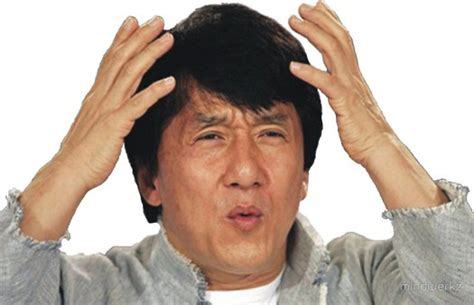
WHY?
The Judge, btw, doesn’t even have any kind of personal or professional link to the Japanese occupation. Even when the protag is asked by a stranded German diva about how he must have suffered during the Nazi occupation, he admits that he didn’t have it as bad as others. His family is entirely intact although they were in the Dutch East Indies when the Japanese invaded.
2. The focus of the series
can you fucking guess
it’s the goddamn judges
the entire series is about the trials and tribulations (pun fucking intended) of the GODDAMN JUDGES
DURING SERIOUS TESTIMONY OF VICTIMS AND THE ACCUSED, THE SHOTS ARE OF THE CONCERNED/CONSTIPATED FACES OF THE JUDGES
The mini-series, 4 episodes long, opens with the Dutch Judge writing to his wife and giving some decent introduction to all the major players. And then it brings into focus the various justices from around the world who will be partaking in this historical undertaking.
The President of the Tribunal is Sir William Webb, Australian. He looks great but suffers from terrible lines and staging. BTW all the characters are extremely one dimensional WITH TWO EXCEPTIONS: The British Judge (who veers between an ally, a one-note antagonist, but is then redeemed as an anti-hero - clearly the deuteragonist) and the Chinese Judge, who is soft-spoken, well-mannered, firm but not unyielding, a clear contrast to the fiery and righteous protag of TT(M). Honestly, I think he would be the best portrayal except... halfway through, Irrfan Khan appears as the Indian Judge, and honestly Paul Freeman was so good as the British (Scottish) Judge.
The entire series is about the judges politicking amongst one another and trying to argue about whether crimes of aggression (or crimes against peace) are valid grounds for a case, as these crimes have never existed before (cue arguing about the precedent set by Nuremberg).
Our intrepid (barf) protag intersperses the tense boardroom confrontations (really can barely be called that: a serious point is brought up in court, they adjourn to their chambers, they START to argue, and then the Tribunal President immediately says ok let’s all go retire for the day before any interesting or insightful conversations can begin) with one-on-one interactions with (1) a German pianist diva whom he admires as he plays violin (their duet sucks btw) (2) a Japanese intellectual who hangs out at the beach (they have zero onscreen connection and exists only to instill doubt in the Dutch judge’s mind as he contemplates the trial) (3) various judges as they begin gossiping over the latest judge to pose drama in the chambers.
That’s all. Honestly. That’s the content of the mini-series in a nutshell.
3. The pacing and the script
god it’s so
MEALY
Every scene, EVERY SCENE, is played as grave and solemn
You think this isn’t bad? Every single scene begins with thoughtful pauses and long poignant looks, even over such lines which you can picture your grandpa and uncle just quipping at each other (”The marathon begins” “I’d rather hope it would be a sprint”).
Mealy = the actual script is so awkward. It doesn’t sound like human beings talking. It’s a mouthful. ugh.
Pacing = Example: in episode 3, probably, literally 3 scenes side-by-side, 2 judges talking to each other as they walk down a path. Each scene is: A asks B about C. And then it is immediately followed by D asking C about B. CAN YOU IMAGINE??? They don’t intersperse the shot at all. It’s just 3 conversations in a row gossiping.
Pacing 2 = time passes but badly. Suddenly a year has passed, but we don’t get a sense of it unless we’re told; there’s no difference in appearance or speaking manner among the judges. there’s no real development at all, except for the position of the Dutch Judge whose position on crimes of aggression changes as he gets pulled in several ways by several people, and you end the series without any feeling of resolution or satisfaction. AT ALL. I feel like you end where you start in terms of the arguments and everything.
4. Reflections
I’ve discovered that this mini-series was nominated for an emmy in 2017 for best series. I’ve also discovered 2 reviews (ONLY) online for this series, one on a blog and on one iMBD, both praising the series for being good for history buffs that showcases an unknown part of history.
i) That is not accurate. It is a terrible series that showcases the politics and drama of the tribunal judges, and not of the japanese war crimes. literally nobody needs to know, or care, about the judges of a war crimes trial (british, canadian, US, NZ judge conspire to get the president replaced, he leaves, US judge is chosen as his replacement, HE COMES BACK, NOBODY CARES) (aside with Blakely the US lawyer and what he’s trying to accomplish in court with his controversial and it’s not explained and ignored later)
ii) Historic footage is interspersed, meaninglessly. This includes the footage of the accused and 2 victims giving testimony, I believe. It is THE MOST INTERESTING part of the series. The footage used is minimal. And it just doesn’t gel with the whole series as a whole.
iii) This show was made by a Japanese crew and NHK so.
All in all, from an entertainment perspective, Tokyo Trial failed to be compelling, interesting or noteworthy. The actors were bogged down by a bad script and weak direction. If you want to watch a show about the Tokyo War Crimes Tribunal, watch the older Chinese movie - less accurate but way more entertaining, and it ACTUALLY focuses on Japanese war crimes.
17 notes
·
View notes
Text
Can I just take a minute and fawn over ancient Egypt?
Seriously, I love ancient Egypt. I think my fascination with this ancient culture is the result of a perfect storm. I think I ended up enjoying the ancient historical aspect of it from the old mummy movies as well as its subsequent cartoon, I enjoy the style from the plot part of Yu-Gi-Oh that didn’t involve card games and I fell in love with the ancient mythos by watching the horribly inaccurate mummy-based superhero show mummies alive. kind of weird how there was that much ancient Egyptian stuff on TV in the early 2000’s.


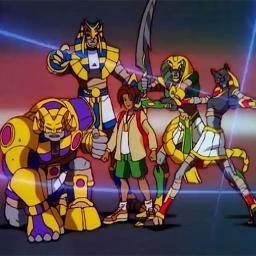
Weirdest. programming. choices. ever.
But ever since then I’ve loved ancient Egypt. The architecture is incredible the fact they were able to build such incredible monuments with just basic tools and engineering principles is amazing. They were one of the first River Valley civilizations in the world essentialy one of the first set of people to stop wandering around and living a nomadic lifestyle and settle down in a desert oasis. More than that, they were people without massive religious pantheon. If you thought the Greeks were crazy about their God you should’ve seen the Egyptians.
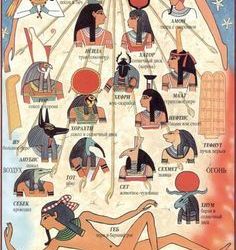

Name your favorite animal and the thing you like most and there’s probably a god who’s got an aspect for it
The agent Egyptians had a 300+ pantheon, whose worship was almost equally spread out among the centuries between minor gods and and major gods. Not only that, But each in a Gyptian’s had God who shared both genders and some that were even genderless as well as the common male and female. Such a genderless gods Work ancient primordial beans who are considered the basic forms of the universe like the sky or even stars! Some gods were even aspects of other gods, meaning that they represented something similar to one God but also covered another topic.
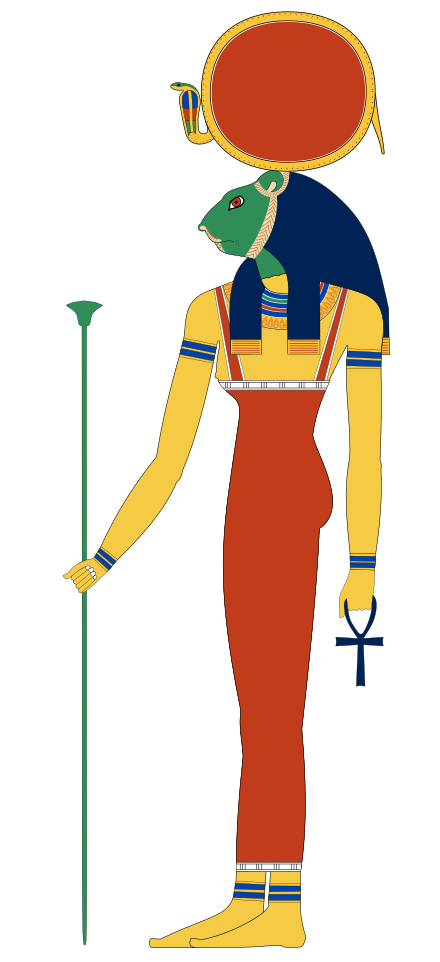
See this gal? She used to be an eyeball for a bird man/sun god. Family is weird
Part of why so many different gods were worshiped was because of the political world in ancient Egypt. whenever a pharaoh would die, whoever the next pharaoh was going to be would succeed and often times the priesthood would change up the pantheon depending on what they felt were the better gods to worship for a more productive crop season or even just to bring prosperity to the land. Plus there were like a ton of cults for different gods and goddesses so no matter what you could really sort of pick your flavor with your diety of choice.

My personal favorite is Ammit. She’s a demon who devours the souls of those who are judged to have lived wicked lives when their hearts are weighed against the feather of truth. She’s looks like she’d need some belly rubs
And the stories of the nonsense these guys get up to is insane. where else are you going to hear a story about a brother who tricks his brother into getting into a box and then proceeds to throw that box into a river where it ends up growing into a tree, which is then found but then the first brother cuts the 2nd brother up into 14 pieces but they only find 13 to put together and make a mummy and the 14th piece is his dangly bits. And that’s why the king of the underworld is a mummy and also a fertility god kids! 
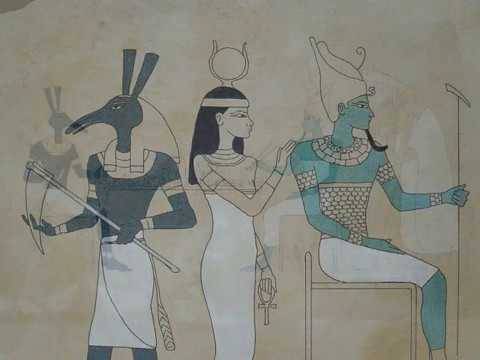
Seriously, the nonsense these guys get into is a million times more interesting and extreme than what the kardashians will ever do.
And lets not forget about another thing. The GOLD. Look at this pyramid Now look at this pyramid


The pyramid on the right is what the pyramids of Giza looked like before they were mugged over thousands of years. That’s white marble with a massive GOLD CAP!! Some would say that there’s such a thing as ‘too much’. I’d like to think the ancient Egyptians did not have a concept for that.
In short, I love ancient Egypt and y’all can keep your Percy Jackson and Greek and Roman icons and pantheons! I’ll be chilling on the Nile giving Ammit belly rubs and laughing about how Set (he’s the first brother I mentioned earlier) looks like an anteater despite being the god of chaos, war and storms.
GOODNIGHT AND PRAY THAT RA ISN’T EATEN BY THE PRIMORDIAL SERPENT APOPHIS TONIGHT SO WE CAN KEEP LIVING!!
#im sorry#ancient egypt#im not sure if im culturallyy appropriating or if i just really dig their aesthetic#history fandom#Seriously ammit reminds me of my dog#give ammit belly rubs 2020
2 notes
·
View notes
Text
“10 Movies to Describe Me” tag
Hey, as I ever said, I LOVE cinema and going to the movies, watching documentaries, enjoying life by studying every nuance present on the 7th art.
Along life we have contact with a bunch of movies and references that affect our personalities, view of world, and even how we act towards some situations. Cinema is a powerful way of art, possibly influencing.
Everyone has a list of movies which influenced our personal growth. This list is all about it: 10 Movies you can use to describe me.
1 - Spirited Away
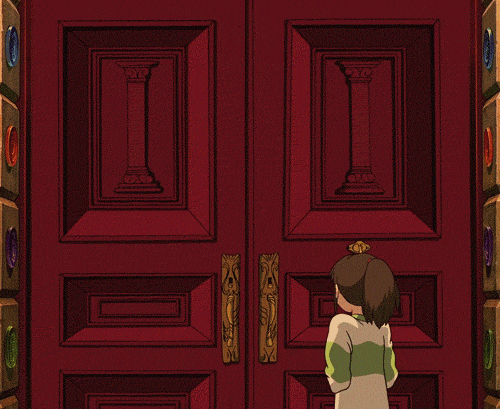
Well, I think Spirited Away was my first contact with cinematography eastern culture and made me go further in searching for more. I was 5 or 6 when I watched and fell in love with it.
Nowadays I know how to respect different cultures, have a deep interest in stories and mythologies from other countries. Thank you Studios Ghibli!
Influenced personality: Love for mythology and cultures.
2 - The Adventures of Priscilla, Queen of the Desert
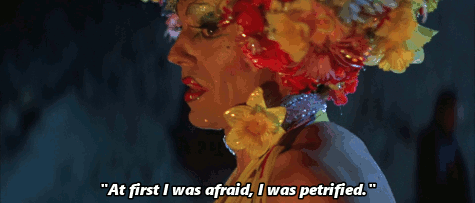
I LOVE drag queens and everything related to that subculture. I remember watching that movie as a kid, after midnight and hiding from my parents, which advised me to sleep because I had school the next morning.
Everything seemed so colourful and amazing, almost magical. A explosion of music and dresses, high heels, makeup, big wigs and dancing.
While growing up it influenced my choices on sports, acceptance, music, and love for drag culture.
RuPaul's Drag Race is part of my love for drag queens, but it wasn't the first reference. Btw, support your local queens and art.
Influenced personality: Dancing skills, LGBT acceptance (when it comes to myself, I have nothing to do with someone else's sexuality), love for drag culture and pop music.
3 - Blackfish
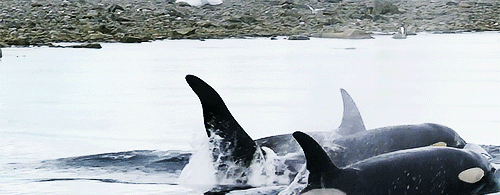
Oh ma'am, now we got to a very rough part of my personality: my HATE and INDIGNATION over zoos and aquariums.
I don't like zoos, not at all. Watching animals caged in small spaces and sad, oh boy, it makes me want to invade the whole place with a hammer and set them free.
Before watching Blackfish I didn't quite realize how bad everything was for fishes in Aquariums as well. Now, I want to start petitions against Sea World and Aquário de São Paulo.
I love animals, WAY MORE than I enjoy being around humans, so knowing how suffering is their life inside small places makes me want to cage humans and let them walk freely.
Influenced personality: Love for sea animals and thirsty for their justice.
4 - Inglorious Basterds

(This scene is one of my favourites lol)
#ILOVEHISTORYANDTARANTINO
Well, Inglorious Basterds is a very historically inaccurate movie, but I love it with all my stone cold heart. There are so many catchphrases and iconic moments.
I just love that movie. Nothing really special or meaningful.
Influenced personality: The need for kill Nazis lol
5 - The Perks of Being a Wallflower
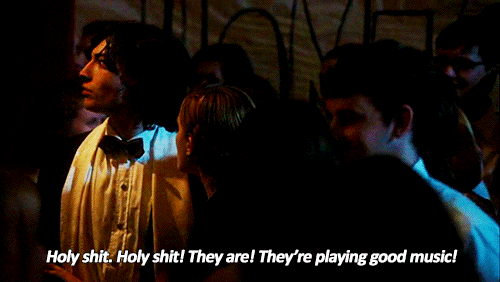
I was a very angst teenage and depressed as well, not counting anxiety on the mix. When I was 13 The Perks of Being a Wallflower aired on cinemas, and suddenly all my concerns about acting weird and not normal, compared to other girls around and whose studied with me, kind of seemed so pointless, mainly because Patrick, Charlie and Sam seemed to have so much fun, even acting quirckly and being classified as misfits.
My story has nothing to do with neither of characters, but I related a lot to them. So I think a big part of me came and flourished after watching The Perks of Being a Wallflower.
Also, it taught me the importance of speaking how you feel, therapy and trusting people enough to tell them when something wrong is going on.
The book is also one of my favourites, so I’m not impartial when it comes to The Perks of Being a Wallflower
Influenced personality: Not afraid of being myself, fight for human basic right of having mental health treatment guaranted and embracing my quirk personality.
6 - Erin Brockovich
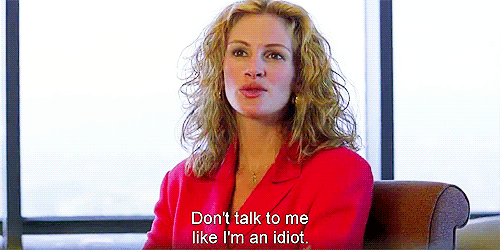
Everyone who knows me well enough, is VERY aware of how independent and self-suficient I am. I hate depending on people for completing tasks or doing stuff, so most of the time I try to learn do things all by myself. It’s something natural inside of me, partly because I don’t get lonely, so the idea of depending on someone to anything makes me cringy.
Erin Brockovich is a movie I watched when I was 12 and the way Erin acted towards everyone, giving priority to her life and kids, not caring about everyone else’s opinion, it made me root to be independent like her (except for the kids and struggle to find a job). Erin exhales big dick energy, also the ending made me aplaud the movie (even tho I was alone at home watching it).
Influenced personality: I learnt how to classify my priorities, also improved my confidence on how I act, since Erin isn’t afraid of achieving things and proving her point, even if everyone else is against and won’t believe her.
7 - Lilo & Stitch
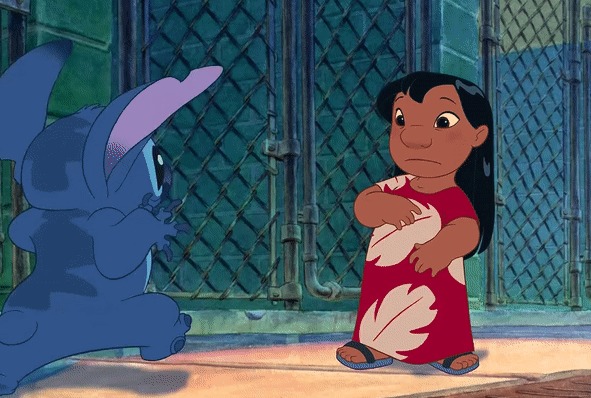
I think every single living human alive had at least one movie, you know this one movie, which you obsessed during your childhood. It doesn’t matter the genre, you watched it nonstop and pissed off your whole house with how repetitive movie marathons seemed to get with you, since everytime you picked whatever you were about to watch, your choice was quite predictable.
The movie I obsessed during my childhood was Lilo & Stitch (also Scooby Doo, where do you think I learned how to copy someone’s fingerprint by using pore cleanser and powder?).
As I mentioned a few items ago, I was a misfit and it played a big part on my life, being excluded from parties, playdates and games during P.E was common. It bothered me, but everything changed when we adopted my first dog, a dachshund called Xuxinha. We were Lilo & Stitch, whenever people treated me badly at school, I knew that she would be waiting for me at home.
Xuxinha passed away in 16th February 2017, and I still miss her.
Influenced personality: It helped understand that people are douchebags, but as long as I have my dog/sister at home to hold and distract me, then nothing else matters. I learned the importance of surounding yourself with people who cares about your well-being, not caring specie, ethnicity, etc.
8 - Wonder

I don’t think this item requires a lot of text to describe why I felt influenced by it. Watch the movie and let’s sob together.
Influenced personality: Learned why appearance means nothing, and everyone goes through some struggle, so always be there for people who cares about you as much as you do about them. Also, always stand up against bullying, it may look like a joke now, but it can be the trigger for fatalities.
9 - Spotlight
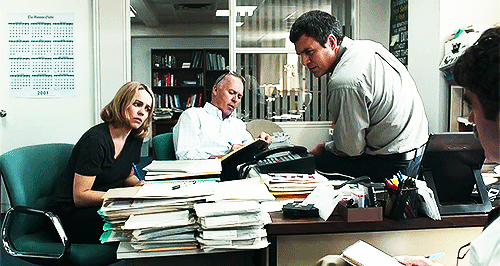
I study Social Communication: Journalism, that’s what I’ve been wishing to do and want to be in the future. Even tho I decided what I wanted as my career YEARS before the release of Spotlight, it helped me define which kind of journalism I wanted to follow: Investigative.
It feels like I just made 4 out of 2+2, considering the fact that I love detective stories and would love to be a detective myself, but watching and acknowledging that all the investigation and accusations were based on real facts, oh Ma’am, I can’t even describe the thrill consuming my mind only by imagining what it feels like to be involved journalistically in an investigation.
Influenced personality: My PASSION for investigative journalism.
10 - The Imitation Game

Last but not least: The Imitation Game.
Well, I constantly get annoyed on how biased our society is, for real, and whenever it happens I write poems and texts and protest, and piss off a bunch of people by only talking about a situation of inequality. When I first watched The Imitation Game the whole Alan Turing being castrated and killing himself because of homophobia and a VERY, I repeat, VERY narrow-minded society, it PISSED OFF THE HELL OUT OF ME, and I used this rage during a full semester of college paper works.
I named a group after Alan Turing and our semester project was basically about people being biased and killing genius because they cannot look further from their own bellybottoms. I won a “Oscar de Jornalismo”, which is the award that happens every six month in my college, prizing the best works from the semester.
It still makes me so angry to imagine what Alan Turing could had done if he lived for at least 20 more years.
Influenced personality: Well, it made me channel my rage about a situation and helped me to understand why we should discuss homophobia, racism, wars, etc, even harder now. Watching the world following the path for making the same mistakes all over again is frightening, and only history can help us.
- x-
It has potential to be a tag, so I’ll tag some people I want to know what movies inspired them. You don’t have to make a whole long ass text about your choices, just sharing is enough :)
@ohmydearmoonchild @okayycalum @emerson-moonchild @btsqualityy @theburntwaffle
#movies#cinema#hashtag#influences#personality#art#we're what we absorb#we are art#the imitation game#alan turing#spotlight#wonder#lilo & stitch#erin brockovich#the perks of being a wallflower#inglorious basterds#blackfish#the adventures of priscilla queen of the desert#spirited away
140 notes
·
View notes
Text
Forensic Incoherence - TSP Edition
Ok I snapped and thought I’d get it out of my system. Also because I’m petty and I let things annoy me more than they should. I’d like to say first and foremost that people can and should still enjoy ‘The Spanish Princess’ as a fun tv show if they like, I’m simply pointing out that when it comes to Scotland, it bears even less resemblance to actual history than usual.
Also it is by no means the worst representation of Scotland! Which is saying something because it is NOT good. It’s about par for the course I’d say, with regards to the way mediaeval and early modern Scotland are portrayed in the media. Outlaw King and Outlander rise slightly above the mark but only just- i.e. they’re somewhat good pieces of historical media that are still inaccurate but are recognisably Scotland (and have some nice panning shots and good soundtracks). The middle point is probably inaccurate MQOS movies because they’re the least painful kind of inaccuracy that’s still kind of bad (but even their soundtracks don’t save them- I’m sorry John Barry). I will not say what the absolute worst piece of media is, I believe I have yet to encounter it and for that I am grateful. TSP is somewhere between the worst and the middle. The point is, most historical media about sixteenth century Scotland generally sucks, and this tv series is about the usual kind of bad. So I wouldn’t be so irritated with the people who made it if it weren’t for one or two individuals’ saying things about how ‘it really happened’.
With that in mind this is a good teachable moment. Usually there’s little point to a detailed analysis of where inaccuracy occurs in a tv show or movie- let’s face it, if they weren’t all a bit inaccurate they probably wouldn’t work too well on screen. However in this case it is such a classic example of the usual, standard depiction of Scottish history that it provides a great resource for showing where these things go wrong (which is everywhere).
So I thought I’d strip back a reasonably mediocre, not too terrible, not overly interesting piece and ask what we have left of sixteenth century Scotland after we’re finished.
I should point out I did not watch the first series of this show, and am basing this solely on the representation of the actual country in the first episode of season 2.
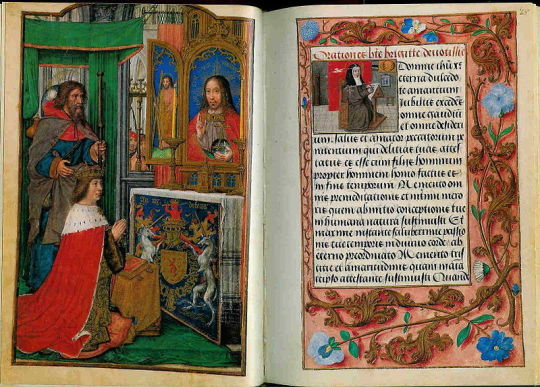
(Hours of James IV, source- wikimedia commons)
Now I’ve talked about James IV’s children in the first of the three scenes involving Scotland already. The last scene doesn’t have much meat in it except that I can confirm Margaret Tudor did lose multiple children and it WAS sad. So that leaves us with the second scene- the so-called ‘council’.
We open on your Usual Nonsense. Lots of men, many wearing tartan, with two famous surnames thrown in there for fun, arguing because The Clans Are Fighting Again.
I don’t have room to go into a whole analysis of the clan system and why our 21st century concept of ‘Highland clanship’ is not really applicable to many of the families at the centre of sixteenth century politics. Safe to say it is especially not applicable to the Red or Angus line of the Douglases (because yeah there were multiple different branches of that famous family), and only applicable to some of the branches of the Stewart family (and there were dozens of them, spread all over the country and operating in very different cultural worlds).
If Scottish politics worked the way that these writers seem to think it does- i.e. you support everyone who shares your family name against all others- then one wonders why James IV hasn’t taken the side of the Stewarts, seeing as that was his surname. Surnames and blood feud were very important in Scotland, both to traditional “clans” and to other families to don’t fit that bill, but they’re not everything. T.C. Smout famously said that “Highland society was based on kinship modified by feudalism, Lowland society on feudalism tempered by kinship.” Not everyone would agree wholly with that statement, but it’s a good starting point for beginners. Nonetheless, at no point should that confirm anyone’s belief that Scottish politics consisted basically of a bunch of clans with their own unique tartans and modern kilts running around the hills killing each other.
It’s also quite funny since James IV’s reign was one of the most (comparatively) peaceful in Scottish history between the Wars of Independence and the Union of the Crowns. He also had very little trouble controlling most of his subjects when it really mattered.
But I digress. We have Clans TM. They are Arguing. There are Douglases. There are Stewarts. It’s about as complicated as an Old Firm game, but less intellectual. This is supposed to be a serious political council.
(read more below)
Firstly, I can’t seem to find a good concise source, but based on a brief flip through the various charters, council decisions, accounts, and secondary sources on James IV’s reign I don’t think there were even any Douglases on the privy council in early 1511. Not that it’s a huge issue in itself- I don’t think that period dramas really put that much thought into representing the bewildering government reshuffles and that’s not really their main purpose anyway.
But what it leaves is this motley collection of characters, some of whom have historical figures’ names, and others who have vaguely plausible names that can’t be assigned to a specific person, and others who are unnamed set dressing but I get the feeling have probably been discreetly named something like Big Chief Hamish McTavish.
So among the few named characters you have George, Gavin, and “Angus” Douglas. These three are all presumably based on historical figures and it’s not too difficult to identify them, even if (like James IV’s children in another scene) they probably shouldn’t have been in the room.
“Angus” is presumably supposed to be Archibald Douglas, Margaret Tudor’s second husband, who became 6th Earl of Angus in 1513 (so two and a half years after this scene is set). “Angus Douglas” is not his name, in any way. It would be like me referring to Henry VIII as King England Tudor. Bit of a ridiculous mistake to make, if IMDB is not lying to me, since it implies that not only did the scriptwriters not even bother to use google, they didn’t even read the (somewhat inaccurate) novel that they based their show off.
Angus is not a common first name in the Douglas family during this period. In fact I don’t think I have ever heard of anyone called Angus Douglas from the sixteenth century or earlier. It was popular in some families from the west and the far north- mostly Gaelic-speaking families like the MacDonalds and the Mackays- but not really among the inhabitants of the Borders and Lowland east coast, which is where the Red Douglases held *most* (though not all) of their power. The earls of Angus took their title from a region in the east/north-east of the country, but they had a large power-base in the Borders and East Lothian too (not least the hulking red sandstone castle of Tantallon on the Berwickshire cliffs).
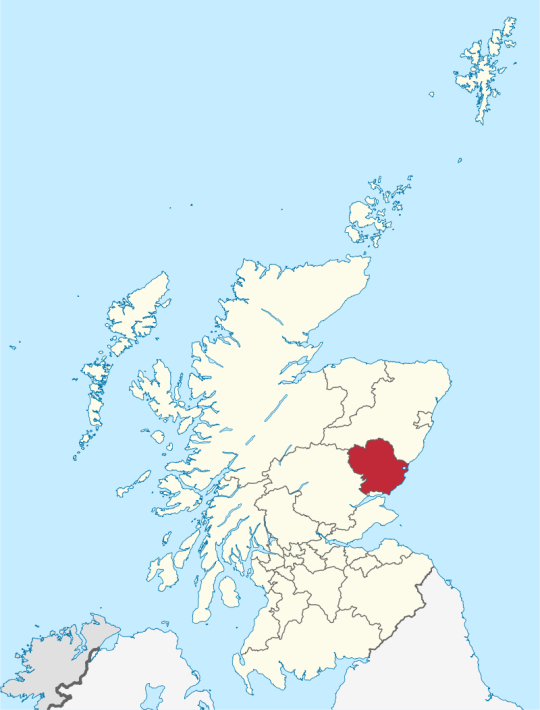
(The highlighted region is the modern version of Angus, between Dundee and Aberdeenshire. Nowadays, it has red-brown soil, old Pictish monuments, it grows wonderful raspberries and strawberries, and its main towns include Montrose, Arbroath (with its red sandstone abbey), Brechin, and Forfar. The urban and agricultural make-up would have been different in the sixteenth century though. The Borders meanwhile are pretty self-explanatory).
In 1511, Archibald’s grandfather, also Archibald, was still alive and held the title Earl of Angus. His eldest son George, Master of Angus (the younger Archibald’s father) was his heir apparent in 1511. Now the elderly 5th earl was still a wily character but he was old, and had also been held in custody on royal orders on the Isle of Bute until as recently as 1509, because the 5th earl and James IV had... well it was a complex relationship. We could perhaps assume that he was not able to travel easily- hence why his eldest son George, Master of Angus, seems to be the ‘George’ who is represented in that council scene. Somehow, I don’t see Archibald Junior being called his own grandfather’s title rather than his name when his father was in the room. George, Master of Angus, died at Flodden, which is why he did not succeed to his father’s earldom and the claim passed to his eldest son Archibald.
(There was another George Douglas worth mentioning, though he wouldn’t be in this scene- George Douglas of Pittendreich, Archibald’s younger- and, let’s be honest, smarter- brother. He was father to the Regent Morton).
The last is Gavin Douglas- probably the most interesting of the three to any literary scholars. He was the younger brother of the Master of Angus, and thus uncle to Archibald. He is one of the most important Scots poets- or makars- of James IV’s reign, and personally I would only place him beneath the great William Dunbar (the other big contenders, Henryson and Lindsay, respectively wrote most of their works before and after the adult reign of James IV). His works include the “Palice of Honour,” “King Hart”, and his greatest achievement the “Eneados”, completed c. 1513, which was the first full vernacular translation of the Roman poet Virgil’s Aeneid in either English or Scots. After Flodden, he became Bishop of Dunkeld, partly through Margaret Tudor’s influence, and didn’t find much time for writing any more poetry in the reign of James V, being consumed by political struggle. He died in exile in England in 1522.
Sixteenth century Scots had many complex and conflicting emotions and opinions, and one could severely hate and distrust England while remaining friends with certain Englishmen or respecting certain English customs. Nonetheless I find it a bit funny that Gavin Douglas is the one who is given the line ‘the English are the root of all our troubles’ since there was one thing that the English gave the world that no early sixteenth century Scots makar worth his salt could ever forget- and that was Geoffrey Chaucer (as well as his compatriots Lydgate and Gower). In his ‘Eneados’, Gavin Douglas himself described the great poet as “venerable Chaucer, principall poet but peir”. Which is not to say that such a character could not also have raged against the English on more than one occasion, this is merely to demonstrate that these three named men were rather more complex than the simplistic kilt-wearing, knife-wielding, drunk, Anglophobic, entirely uncultured stereotype we have on screen.
(And while I’m on the kilt and tartan thing- I literally JUST said that the Red Douglases were mostly centred on the Lowlands, and in particular the Borders. While it’s not impossible that they could have occasionally worn tartan, it’s not exactly everyday dress for them- unless you think it was also day dress for people in Carlisle as well. I notice Archibald Douglas himself isn’t really wearing any- perhaps this is to make him look more palatable. And don’t even get me started on the whole “the clans are fighting” thing).
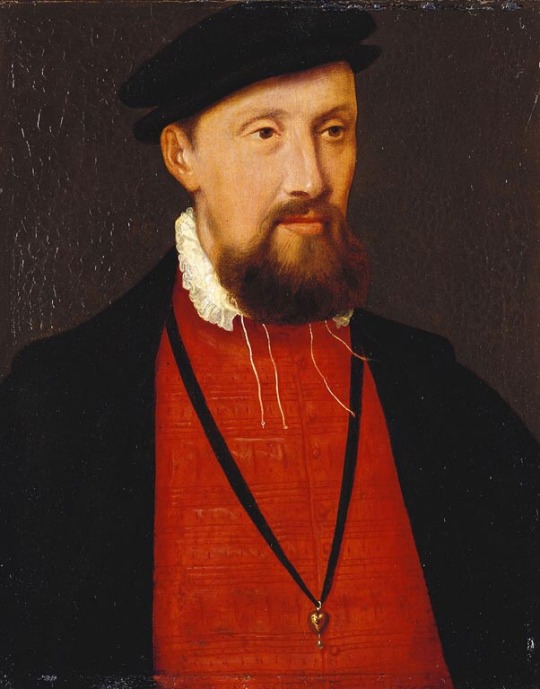
(Look here’s a nice picture of Archibald Douglas, 6th Earl of Angus- admittedly when he was a bit older and had been in exile in England, but look! He’s dressed like other people in sixteenth century Europe! Nothing wrong with tartan but not your usual sixteenth century Borders earl gear.)
Funny thing is though, while the earls of Angus were undoubtedly important (and Gavin Douglas, being a university man, could act as an official), they’d lost their influence a bit by the end of the reign (again, the 5th Earl and James IV had a very layered relationship). Now, while lists of witnesses to charters do not necessarily reveal everything, if you were looking for powerful men who are likely to have been at the centre of government and on the king���s council in 1511 (and not just noblemen who were friends with the king but didn’t have government posts) I would look for some of the below first:
- Alexander Stewart, Archbishop of St Andrews and Chancellor of Scotland in 1511. He appears at the head of the witness list in almost every charter in the first half of 1511, and also signed off on the royal accounts. A young man, only about eighteen in 1511, who had studied under Patrick Paniter (see below), and then later had travelled on the continent and studies under humanists like Raphael Regius and Desiderius Erasmus. He was also James IV’s eldest son, though illegitimate- however although his promotion was undoubtedly nepotistic, there are signs that he would have made a pretty competent archbishop and he certainly actually did his job as chancellor. Although an archbishop (but never old enough to be fully consecrated or receive the revenues of his see), he followed his father to Flodden and died in battle. Erasmus famously eulogized him in his ‘Adages’, saying that:
“when a youth scarcely more than eighteen years old, his achievements in every department of learning were such as you would rightly admire in a grown man. Nor was it the case with him, as it is with so many others, that he had a natural gift for learning but was less disposed to good behaviour. He was shy by nature, but it was a shyness in which you could detect remarkable good sense.”

(A sketch from the Recueil d’Arras which is allegedly a copy of a painting of Alexander Stewart)
- William Elphinstone, Bishop of Aberdeen and Keeper of the Privy Seal in 1511. A man with many years of experience at the centre of government. After studying at Glasgow, Paris, and Orleans, he was made bishop of Ross and travelled to abroad on diplomatic missions. He had previously been High Chancellor of Scotland under James III, and even though he spent a small part of James IV’s early reign out in the cold he was soon brought back into the fold and played a leading role in government. Even though he was never chancellor again, he held the privy seal until the end of his career and often acted as de facto chancellor during the tenure of James IV’s younger brother the Duke of Ross (also an earlier Archbishop of St Andrews). William Elphinstone is also remembered for being a very active bishop in his diocese- he built a bridge over the River Dee, rebuilt part of the cathedral, and founded the University of Aberdeen, which received its papal bull in 1495. He organised the construction of King’s College, and the chapel built on his orders is still at the centre of the university’s campus today. He also sponsored the publication of the Aberdeen Breviary, on Scotland’s first printing press. He is supposed to have been against the invasion of England in 1513, but after the king’s death, Elphinstone was seen as the natural choice to succeed Alexander Stewart in the archdiocese of St Andrews, despite his age. He died in late 1514.
Andrew Stewart, Bishop of Caithness, Treasurer in 1511 takes third place on a lot of charters. Less can be said about him than the first two, though his rise at the centre of government really took off around 1509. He was Treasurer in 1511. It is not clear which branch of the Stewarts he hailed from, but it may have been the Stewarts of Lorne, which would have made him a distant cousin of the king and a slightly closer cousin of the king’s last known mistress, Agnes Stewart. Things are not made any simpler by the fact that, after his death, the next bishop of Caithness was ALSO called Andrew Stewart, and this one was an older half-brother of the Duke of Albany and a son of James IV’s uncle. The main takeaway- there are lots of Stewarts in Scotland, including the Royal Stewarts, and too many branches of the family for any simplistic tale of “clan” rivalry with the Red Douglases to be at all compelling or make sense. It is also worth noting that until 1469, Caithness would have been the most northerly diocese in the kingdom- whether Andrew spent more time there or at the centre of government is unclear.
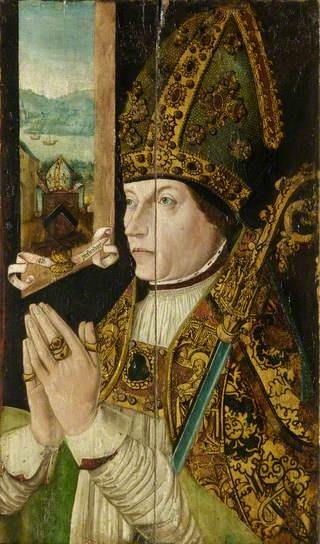
(A rare contemporary painting of William Elphinstone, bishop of Aberdeen and Keeper of the Privy Seal)
Archibald Campbell, 2nd Earl of Argyll and Master of the Household in 1511- This post was less explicitly a ‘government’ post but the royal household still had an important political role. Even without this government post, though, the earl of Argyll was an important man. One of the two ‘new’ earldoms created in the reign of James II, the earls of Argyll were sometimes seen as royal ‘policemen’ in the West Highlands and islands. Their earldom was named after the large region on the west coast of the same name, cut up by sea-lochs and mountains. However they often had their own agenda and could exercise some independent policies in the Isles and northern Ireland. The earls of Argyll were usually the chiefs of Clan Campbell (look! An actual Highland clan for once!), including its many cadet branches. Clan Campbell has a very black reputation now (with some justification), though it is worth mentioning that in the sixteenth century they were also patrons of Gaelic culture and poetry, and frequently intermarried with the families they were meant to be ‘policing’. Notably, Archibald’s sister had been married to Angus Og (MacDonald), son (and supplanter) of the last “official” Lord of the Isles, but after Angus Og’s murder in the 1490s, the then earl of Argyll kept Angus’ son (his own grandson) Domnall in custody on behalf of the Crown- at least until he escaped and started causing all kinds of trouble in the early 1500s. Archibald Campbell, also called Gillespie, was the second earl of Argyll and rather less influential than his father had been, but he was still one of the most important laymen involved in government in the latter part of James IV’s reign. He died at Flodden in 1513.
Matthew Stewart, 2nd Earl of Lennox and Lord Darnley- Appears as a witness in many charters and is mentioned at council meetings on occasion. Yet another branch of the Stewart family- I must reiterate, a shared surname, though important, did not necessarily mean that everyone shared the same rivalries or stuck together through thick and thin. The Lennox is a region at the south-western edge of the Highlands, and north of the River Clyde- it is mostly centred around Loch Lomond. The Stewarts of Darnley had also had close links with France and in particular the Garde Écossaise for over a century. This earl of Lennox’s father led a short rebellion during the early years of James IV’s reign, but most of that was smoothed over in the end. In all honesty I don’t know that much about Matthew personally, except that he pops up a lot in government and court records (and there was also a very delicate case that came before the council in 1508 involving his daughter). I will need to look into him further. He died at Flodden- his son was the earl of Lennox who then died at Linlithgow Bridge in 1526, and his grandson married Margaret Douglas, daughter of the earl of Angus, and was the father of the infamous Lord Darnley who married Mary I.
Alexander Hume, 3rd Lord Hume and Great Chamberlain of Scotland in 1511. In the early sixteenth century, the Humes were borderers par excellence. Lord Hume was Warden of the East and Middle Marches, and had a great many kinsmen and friends (and a fair few enemies) throughout the borders counties. His great -grandfather and, especially, his father had also carved out a role for themselves at the centre of government. In the first couple of years of James IV’s reign, the Humes and even more so their neighbours the Hepburns (family of the earls of Bothwell) were practically running the show- this may have been one of the main causes of the earl of Lennox’s rebellion. In 1506 Alexander succeeded his father as 3rd Lord Hume and Great Chamberlain (less of an active administrative role by this point, but it still entitled the holder to access the centre of government and the royal household). He fought at Flodden but escaped- unfortunately for the Humes, rumours later circulated that they were partly responsible for the king’s death in the battle, and indeed James IV’s son the earl of Moray is supposed to have accused Hume of this in later years. Hume was one of the men who supported the appointment of the Duke of Albany as governor in 1515, after Margaret Tudor’s marriage to the Earl of Angus, but he very quickly grew dissatisfied with the duke, and by Christmas of the same year he had crossed the Border to join Margaret in Morpeth. After another few months of shenanigans in the Borders, Hume and his brother were captured by the Duke of Albany and executed in 1516- their heads were displayed above the Tolbooth in Edinburgh. This resulted in even more drama but I’m getting off topic and I think enough has been said on Lord Hume to give you an idea of his, um, colourful character. He is *supposed* to have had an affair with the second wife of the 5th Earl of Angus, Katherine Stirling, and was later the second husband of James IV’s last mistress Agnes Stewart, Countess of Bothwell.
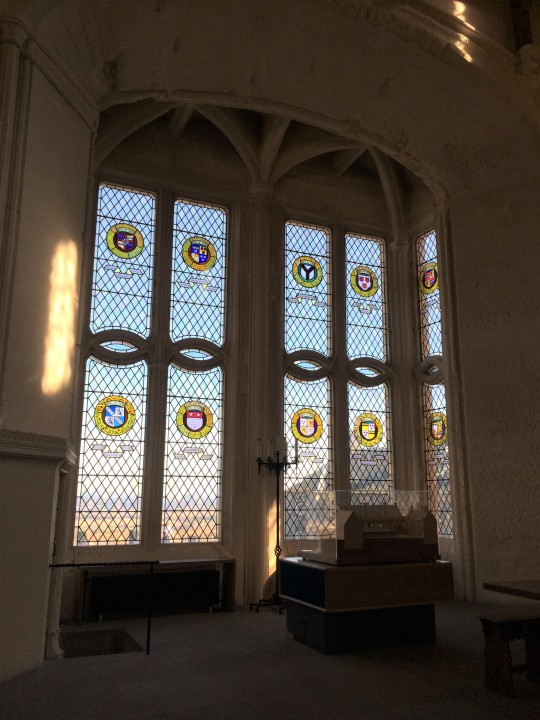
(Restored windows in Stirling Castle Great Hall, the 20th century glass bearing the coats of arms of earls from the reign of James IV. The hall dates from around 1503 and was restored in the 1960s to look like it may have done in James IV’s time. It’s bright yellow and gorgeous and I’m furious it’s never used in anything).
Andrew Gray, Lord Gray and Justiciar in 1511- A lord of parliament like Hume, but with a less committed following, whose main interests lay in Angus (the region). Andrew Gray was one of the men who backed James IV in his rebellion against his father in 1488. Indeed, late sixteenth century legend has it that he was the one responsible for James III’s death- either arranging his murder in the mill at Bannockburn or carrying it out himself. However he acted as a loyal servant of the Crown until the end of his life, and as the justiciar he would have accompanied the king and other important nobles on justice ayres across the kingdom (and held some of his own). Traditionally, there had been two justiciars in Scotland- one for Scotia, north of the Forth, and one for south of the Forth (usually identified with Lothian- there was a third sometimes for Galloway as well). In the 1490s, Lord Drummond and the Earl of Huntly had also acted as justiciars at various points, but from around 1501 Lord Gray appears to have been the only justiciar. He died in early 1513.
Master Gavin Dunbar, Archdeacon of St Andrews and Clerk Register in 1511. Not to be confused with either of the poets Gavin Douglas or William Dunbar, nor with his nephew, Gavin Dunbar, Archbishop of Glasgow. This Gavin Dunbar was a graduate of the University of St Andrews and had travelled to France in at least one embassy in 1507. Technically, in 1511, Dunbar was clerk of the rolls, clerk register, and clerk of council- which is a lot of writing (if we assume he did it all himself, which I doubt). In 1518, Dunbar succeeded to William Elphinstone’s old diocese of Aberdeen and showed a decent amount of interest in the diocese. He undertook an extensive rebuilding programme at St Machar’s Cathedral and provided the nave with the wonderful heraldic ceiling that can still be seen today.
Master Patrick Paniter, Secretary to the King (among other things) in 1511. A very interesting individual. Paniter’s family were from the area around Montrose, in Angus, and he attended university at the College of Montaigu in Paris (as did many of his compatriots, including the contemporary theologian John Mair). He was clearly a bright spark since upon his return to Scotland he seems to have been appointed tutor to James IV’s young son Alexander and the two had a good relationship, with Paniter writing to the young archbishop as ‘half his soul’ and Alexander in turn keeping in touch with his ‘dear teacher’ while on the continent. By that time though, Patrick had moved onto bigger things, since the king appointed him royal secretary some time around 1505. Eventually Paniter became one of James IV’s most influential servants- in 1513, the English Ambassador Dr Nicholas West described the secretary as the man “which doothe all with his maister”. Of course Paniter enriched himself quite a bit too, becoming, among other things, archdeacon and chancellor of Dunkeld, deacon of Moray, rector of Tannadice, and Abbot of Cambuskenneth and, controversially, James IV also attempted to appoint him as preceptor of Torphicen. Paniter helped to direct the artillery at Flodden but unlike both his patron and former pupil, he survived the battle. He is also *reputed* to have been the father of David Paniter, bishop of Ross, by King James IV’s cousin Margaret Crichton.
The men whose careers I’ve outlined above all witnessed the majority of royal charters issued under the great seal in the first half of 1511 (by modern dating). A few others also appeared frequently- for example, Robert Colville of Ochiltree, John Hepburn the Prior of St Andrews, and George Crichton, Abbot of Holyrood. Obviously the make-up of the council changed frequently too. Equally though charters are not necessarily the only or best indication of who would have been part of the king’s ‘council’ and there are other officials and nobles whom we know were close to the king but rarely appear on these, either due to the date range or just their own status- Andrew Forman, bishop of Moray; the 1st earl of Bothwell (before his death); the 5th earl of Angus (in the 1490s anyway- I told you it was a complex relationship); John, Lord Drummond (especially in the 1490s), and others.
But why did I bother giving those long biographies? Well partly to demonstrate the complexity of individual stories in sixteenth century Scottish politics and that they did do important and interesting things. Also since several of these men held opposing political views and family interests, but were usually expected to cooperate at the centre of government, it underlines the point that sixteenth century Scottish politics was a bit more complex than ‘The Clans Are Fighting’. And also this is partly to show that we DO actually have this info at our disposal. Most tv shows and films just choose not to use it.
But the real reason for this long rant was mostly so I could ask, given the info I’ve provided above, WHO THE HELL IS THIS SUPPOSED TO BE:

It’s a bad picture, I know and again, nothing against the actor who seems to be having a lot of fun with the role. But other than James IV, Margaret, and the three Douglases (one of whom has the wrong name and they all have the wrong clothes and also none of them should have been there), this is the only named character in that scene. And I cannot for the life of me work out who he is supposed to be.
He’s given the name Alexander Stewart. As we have seen, there was certainly an Alexander Stewart on the king’s council in 1511- the king’s son who was born c. 1493 and was also Archbishop of St Andrews. Now this this man very much NOT younger than Margaret Tudor, and very unlike the boy Erasmus described, and even though that Alexander died fighting in battle I’m not sure he would have spent most of his days brandishing daggers and yelling abuse at the Douglases in council meetings. He is also probably not our man because as I discussed here, I think the archbishop’s supposed to be counted among James IV’s children in that other scene where this tv series wrongly implies that Margaret Tudor played nursemaid to all of James’ children (again, not one of those kids should have been in the room and it’s really weird that none of them seem to have aged even though two of them were probably older than Mary Tudor).
So who is he? There were definitely other Alexander Stewarts who were both associated with the royal household and who were kicking about sixteenth century Scotland more generally. One was in fact the half-brother of the Duke of Albany- but he really doesn’t seem to have played any role in government, and mostly he appears when his expenses were met by his cousin the king, presumably out of familial responsibility (see also the king’s other probable cousins Christopher, the Danish page, and Margaret Crichton). Another one was Alexander Stewart, Earl of Buchan, a more distant cousin of the king (he was the grandson of Joan Beaufort), but he was dead by 1511 and his son was called John- meanwhile his half-sister Agnes, the king’s mistress, was enjoying the profits of the earldom. In character he seems to come across more like an earlier earl of Buchan, that infamous Alexander Stewart who got the nickname ‘The Wolf of Badenoch’- but he died over a century before 1511. There are probably a couple of other Alexander Stewarts I’ve missed out- it’s a popular name- but none I can think of who would have had any sort of reason to be on the king’s council.
Also worth mentioning I’m not sure what he means when he accuses the Douglases of ransacking his family’s ‘Lowland lands’. That’s just so confusing I won’t even get into it.
ANYWAY there was a point to all this ranting. As I said above, people should absolutely enjoy this show if they want to. However, two things may be said- firstly that if a show is already fairly inaccurate about English history, I am always willing to bet that they have been 200% more inaccurate about Scotland- to the extent that it’s not even inaccuracy any more, it’s just a completely different world and story.
Secondly, when the producers or whoever (and no disrespect to them necessarily except when they say this) claim that they did their research and say stuff like "we are totally with her story, we're up in Scotland, we're sort of Spanish Princess meets Outlander" I would like to remind everyone that not only is this waaaay less accurate than even Outlander could manage:
- Probably none of the kids in the first scene should have been there
- Probably none of the men in the council scene should have been there (except James, obviously)
- The costumes are the same nonsense as usual.
- There were only five named historical figures and somehow they still managed to balls up one of the names (again, Angus Douglas??? How did they even manage to mess that one up??)
- The sixth named figure is a completely made up individual with a vaguely plausible name who appears to serve no other purpose than to get stabby and foul-mouthed and show that The Clans(TM), as they put it, Are Fighting Again.
- It’s heavily implied that absolutely nobody involved in the production has ever looked at a map of Scotland properly, or tried to work out where any of these guys come from. Which is amazing given it’s literally attached to the map of England. Essentially, the land and regions matter in Scottish history and it’s one of the biggest things that period dramas misunderstand or simplify.
- As usual the architecture is slightly off, though it could be worse. Despite the claim that ‘we’re up in Scotland’, suffers from the usual feeling that actually no camera crew made it any further north than Alnwick (though the CGI Warwick-Edinburgh thing kind of worked.).
- Everyone is a classic stereotype of the Barbarian Uncultured Scot and the only sop thrown is the bit with James and the teeth.
- The above thus implies that the creators have not considered that Scotland could ever have anything of any cultural value, such as a talented poet they are literally showing on screen or a bunch of bishops and other churchmen they aren’t. Which is just European Renaissance stuff, and not even getting into the highly impressive cultural world of Gaelic Scotland and Ireland.
- Everyone Is Sexist Except the English (for god’s sake, it’s the 16th century)
- Person wanders around yelling that they are the king/queen and expects this to work. No.
- Bruce and Wallace are (accurately) mentioned a lot but it’s probably more because that’s the only people the writers have heard of, rather than any nod to 16th century literary and historical tradition. No James Douglas or Thomas the Rhymer or St Margaret is expected to make an appearance.
- Incredibly evident that nobody has opened a book on the reign of James IV or even one of those dodgy biographies of Margaret Tudor. I’m not even entirely convinced that they read Gregory’s novel, which is supposed to be their source material.
So what do we actually have?
- James IV’s interest in medicine and alchemy and other proto-sciences is given a nod with the teeth thing
- We know there were black musicians at James IV’s court and that was shown.
- It is implied Margaret Tudor has lost babies. This is true. However there are still allegedly two alive so the maths doesn’t add up.
- Some modern Scottish accents, one done by a Northern Irishman.
- A handful of historical figures’ names scattered around willy-nilly (one of them incorrect).
The overall point is, once again, if you thought the inaccuracy about English history was bad, there isn’t even any inaccuracy in the Scottish stuff, because it’s not even sixteenth century Scotland any more. And that wouldn’t be an issue if the creators didn’t keep going on about how this is what really happened.

(King’s College, University of Aberdeen, with Bishop Elphinstone’s chapel to the right. On other sides of the chapel, the coats of arms displayed include those of James IV, Margaret Tudor, and Alexander Stewart, Archbishop of St Andrews- I think the Duke of Ross might be there too, can’t remember)
- Most of my sources for this included Norman McDougall’s biography of James IV, Macfarlane’s biography of Elphinstone, good general overviews, and a lot of primary sources- especially the register of the Great Seal. Also general knowledge about Scotland because, you know, I’m from there. HOWEVER if anyone wants a source for a specific detail I should be able to find that reasonably easily. Just let me know.
#Scotland#Scottish history#British history#Margaret Tudor#period drama#didn't know what to tag as sorry
4 notes
·
View notes